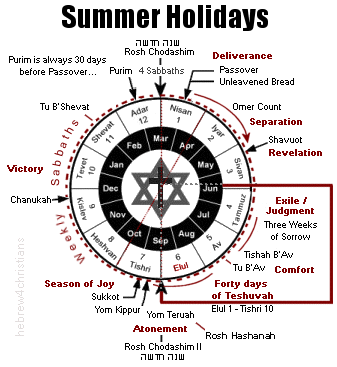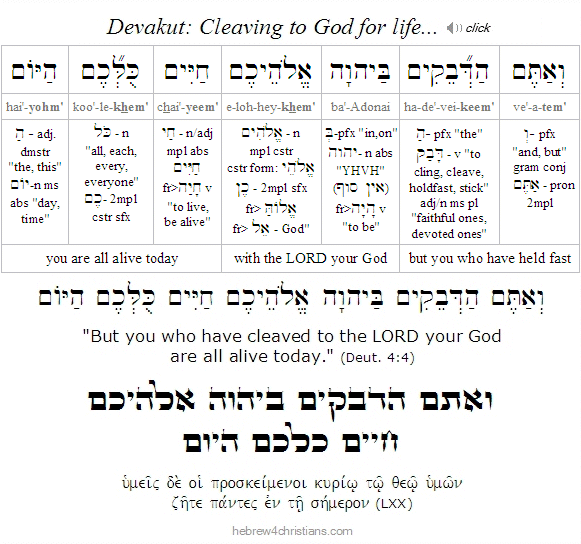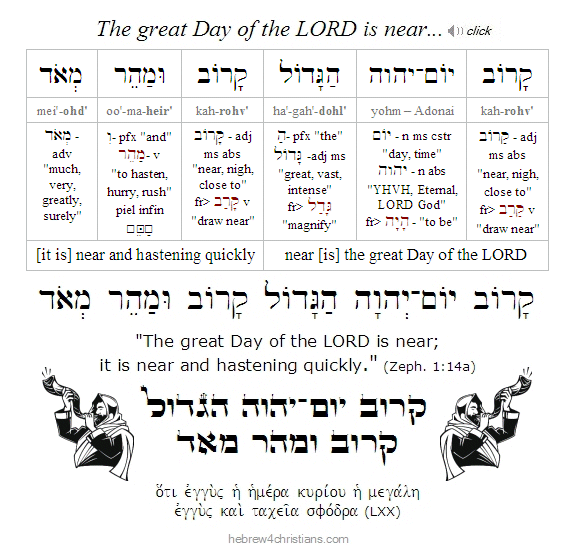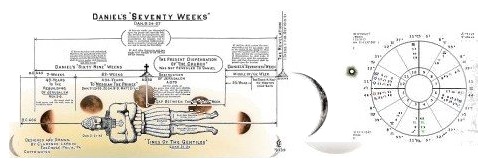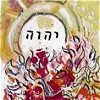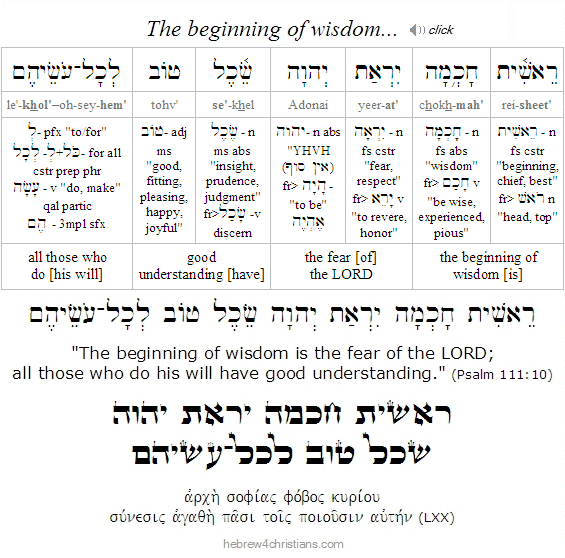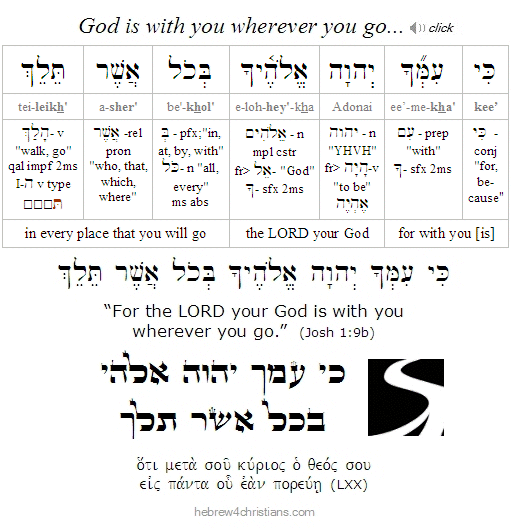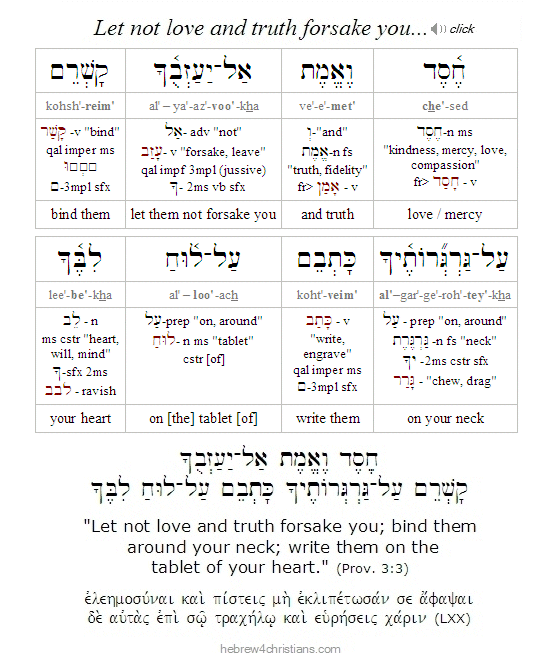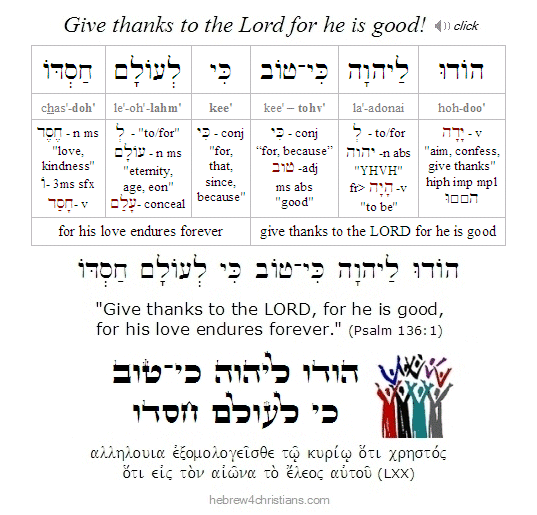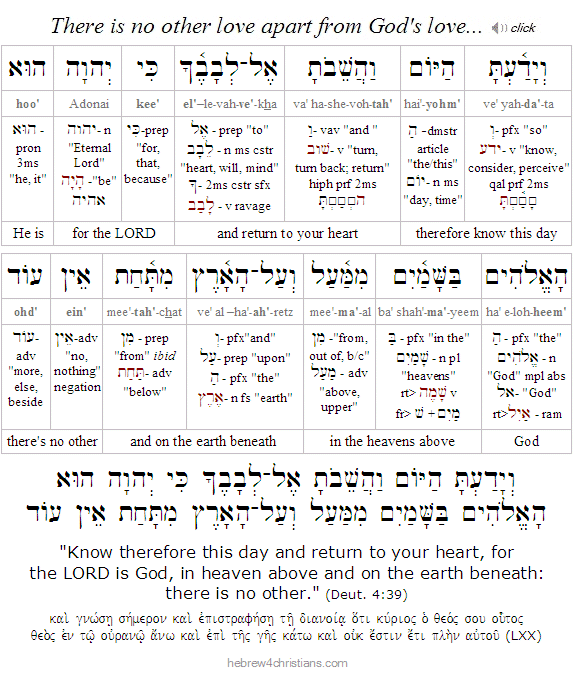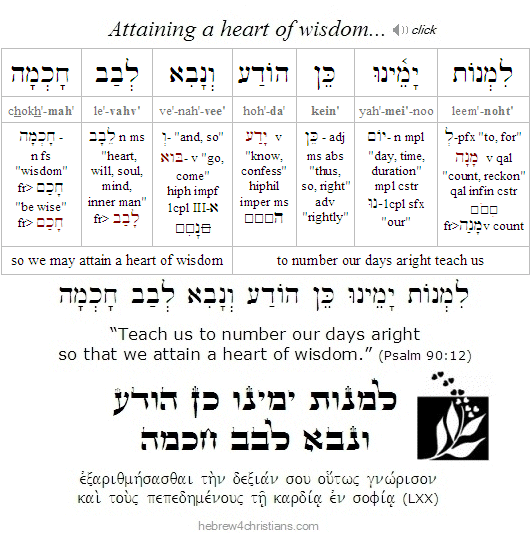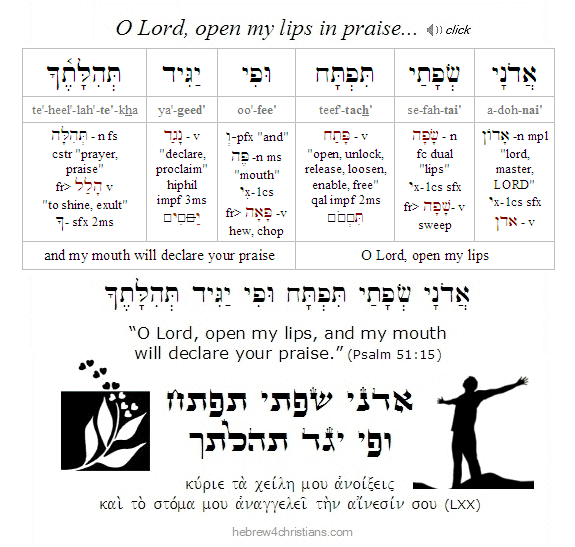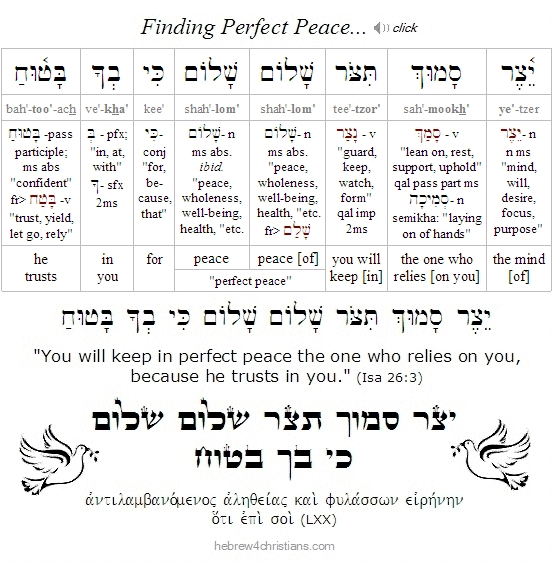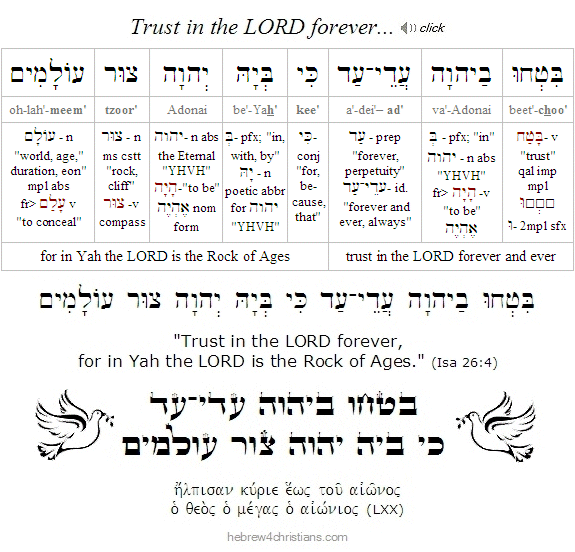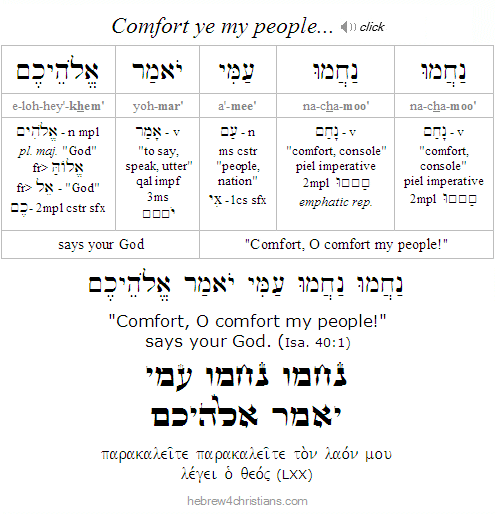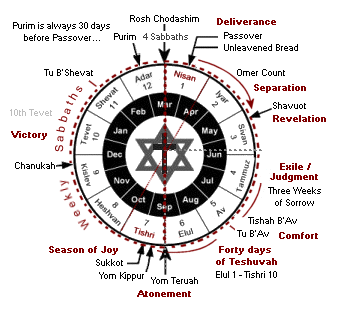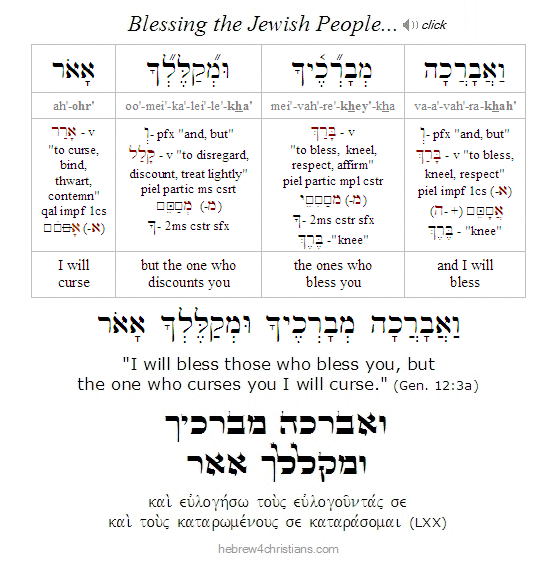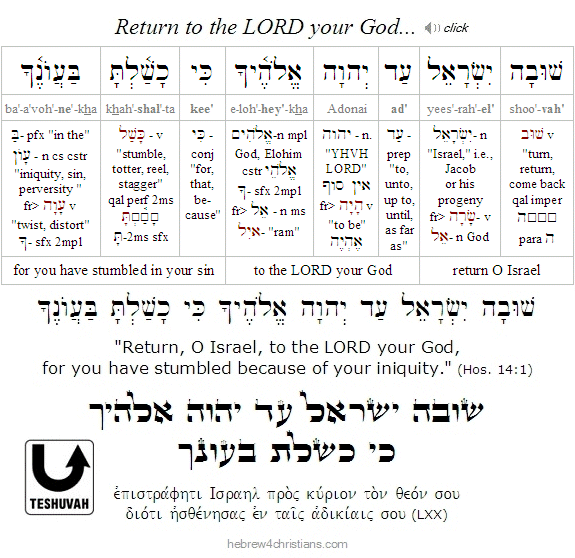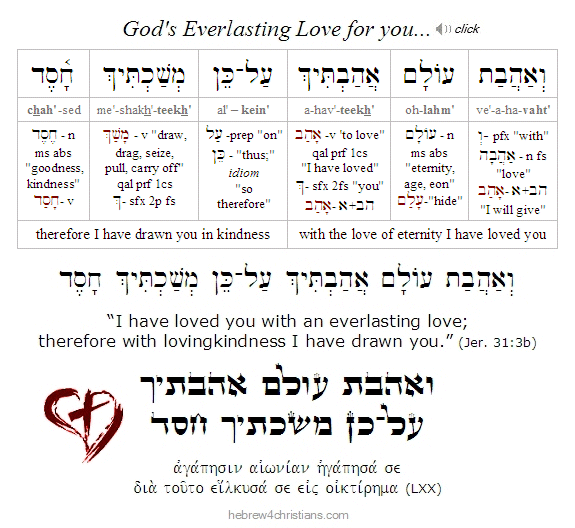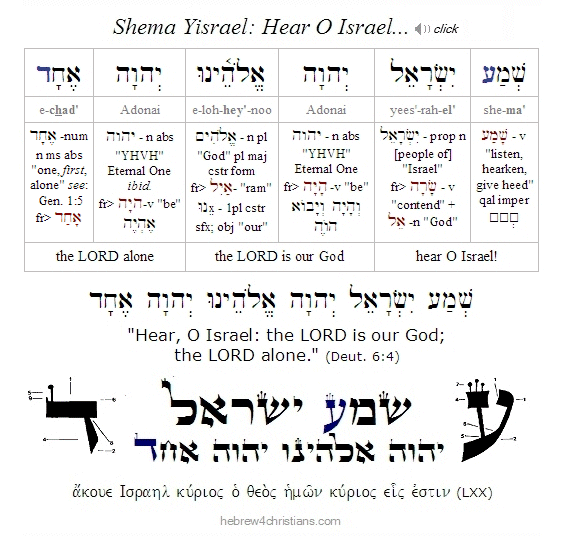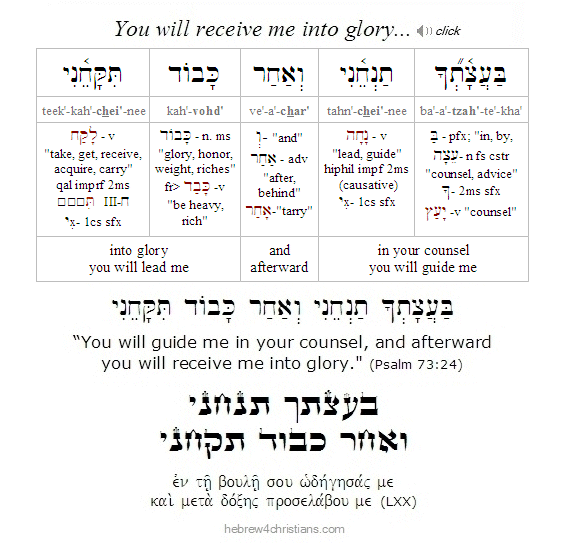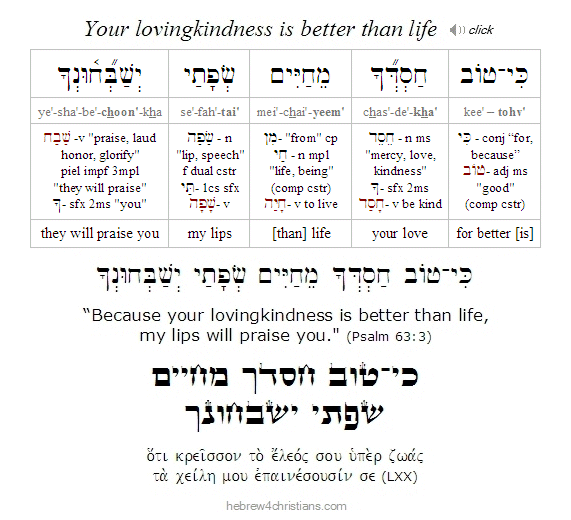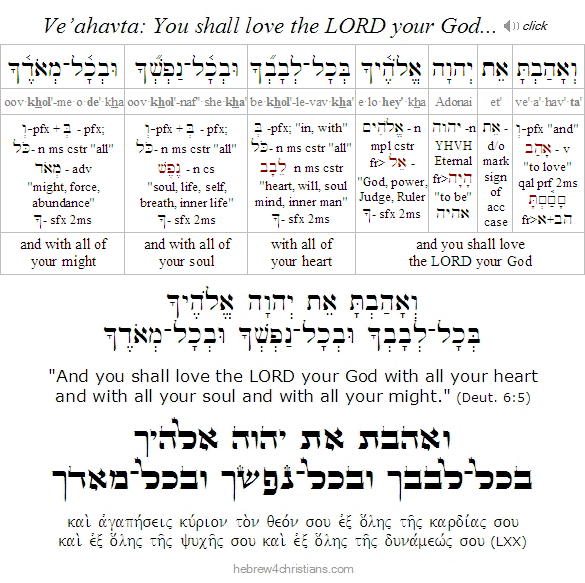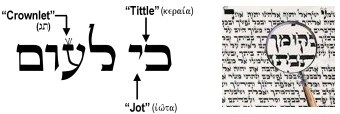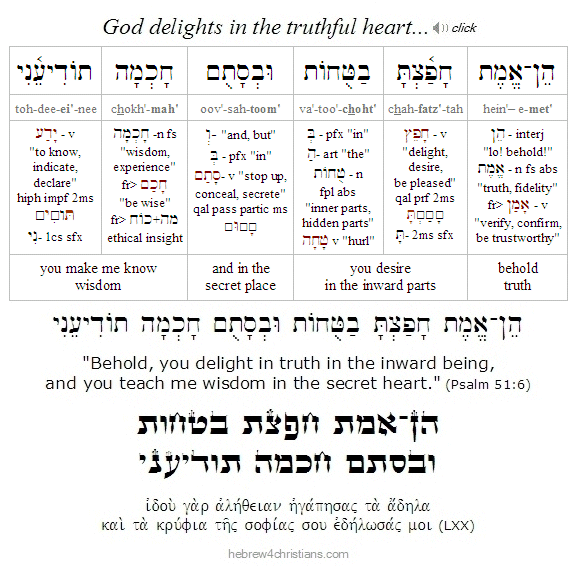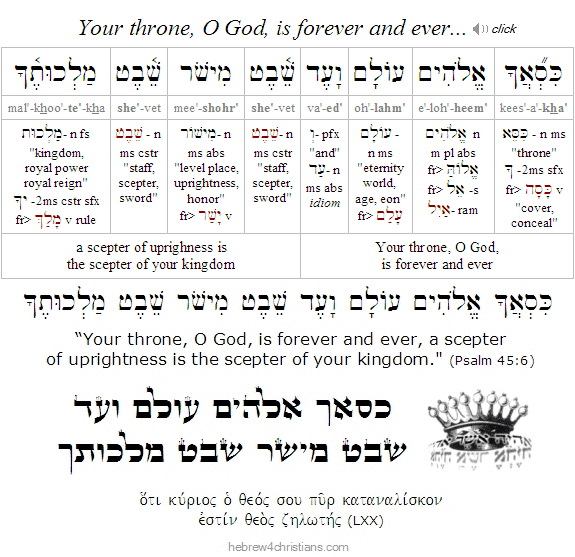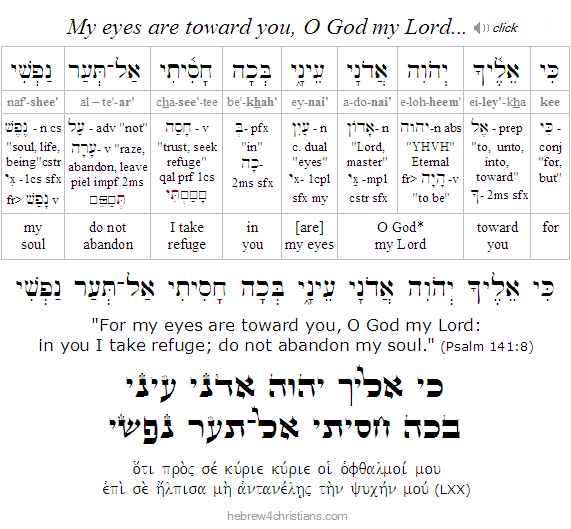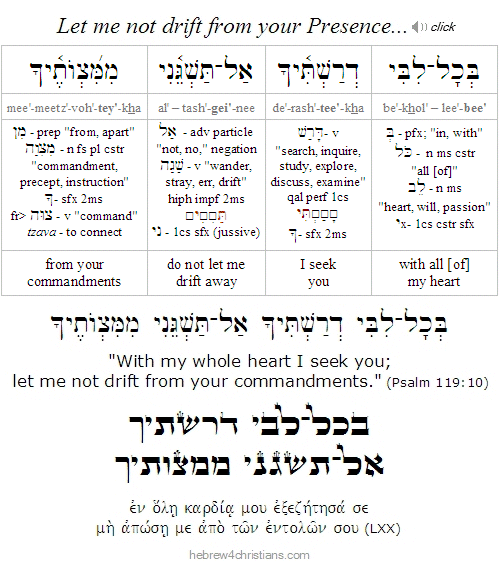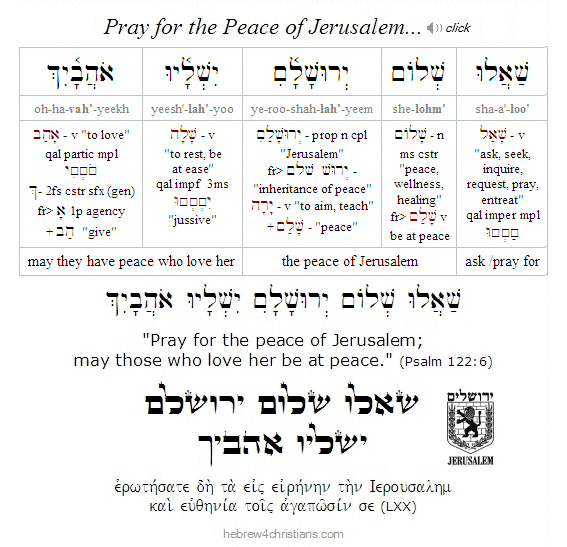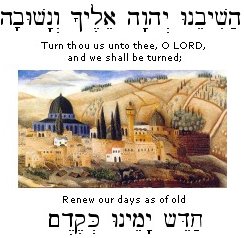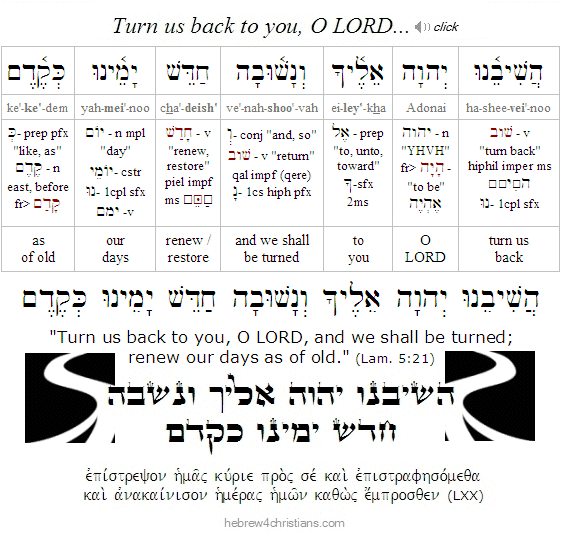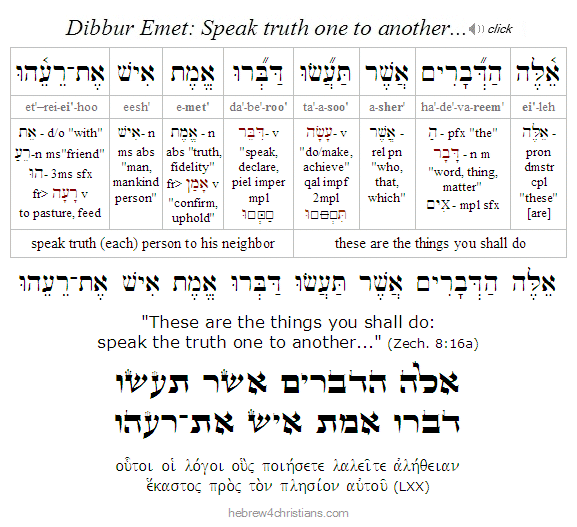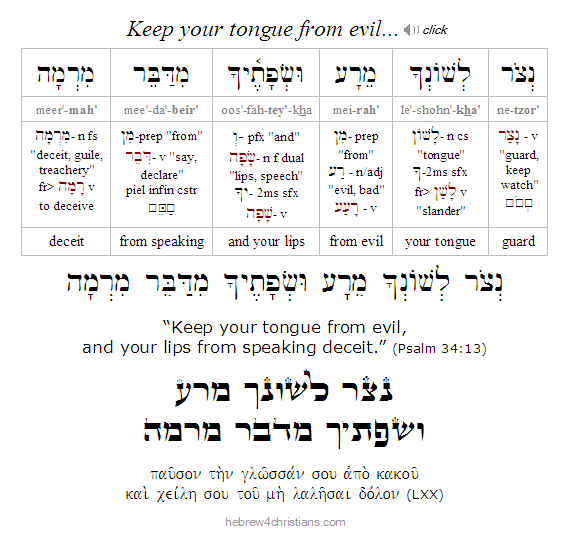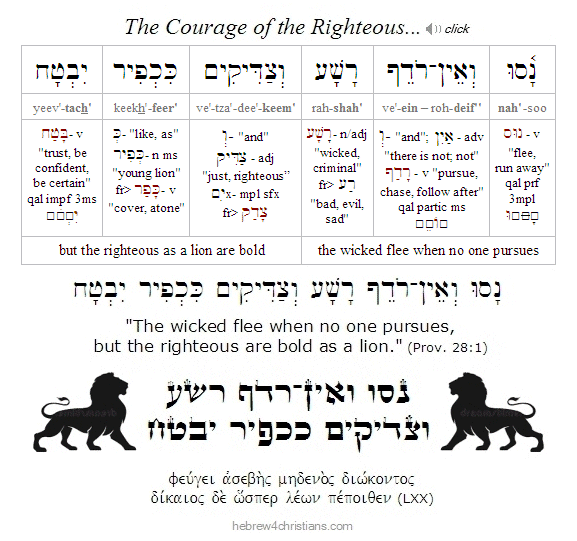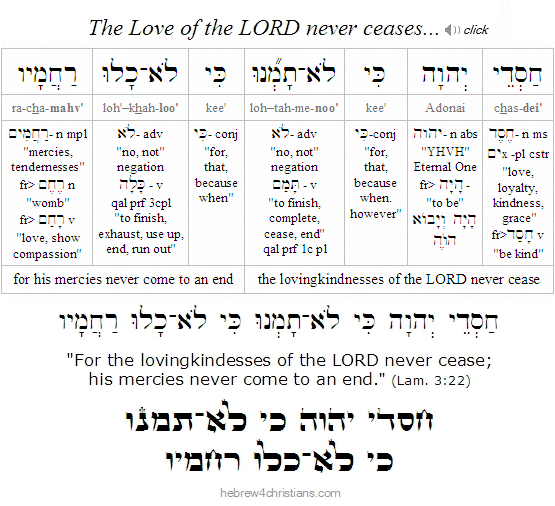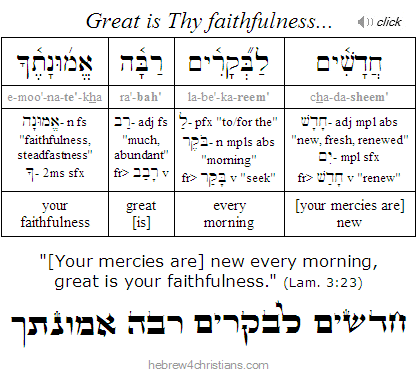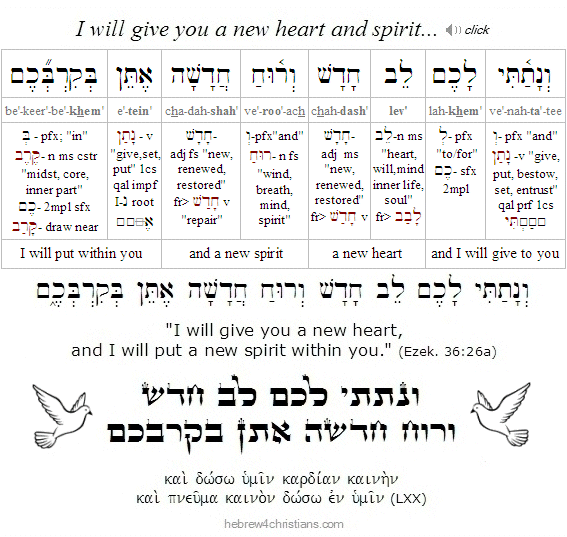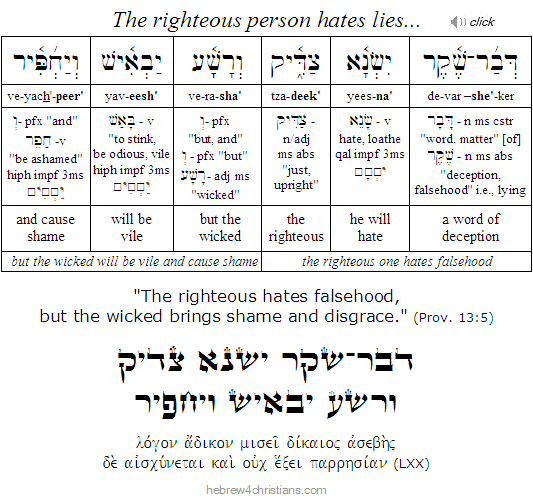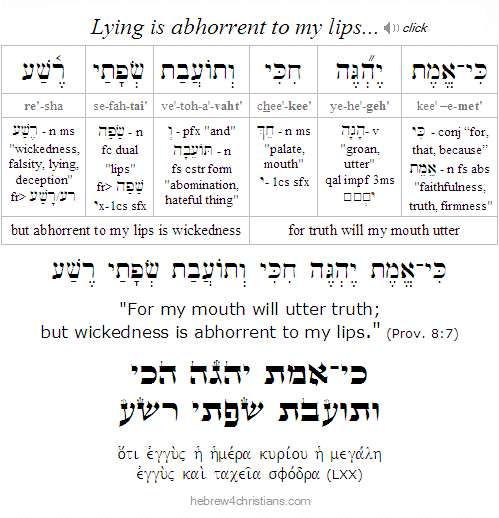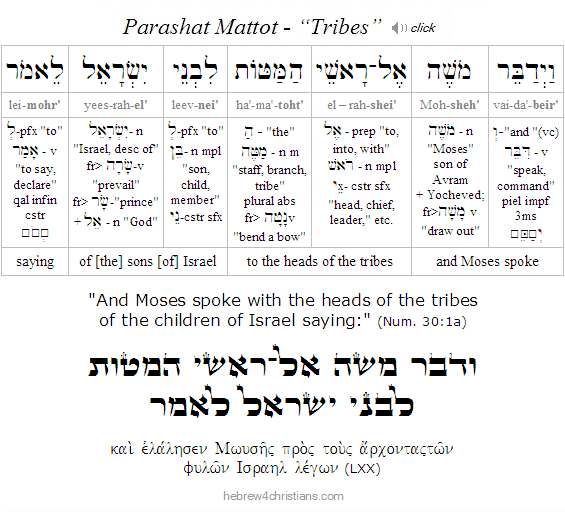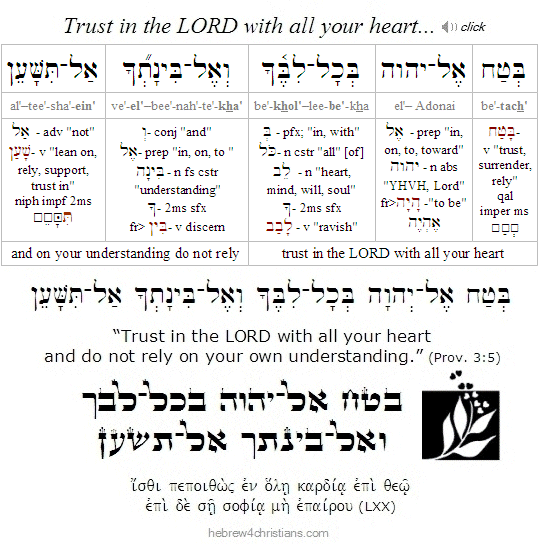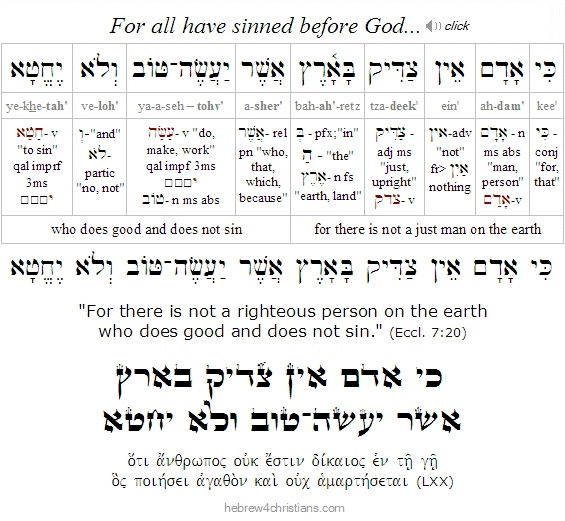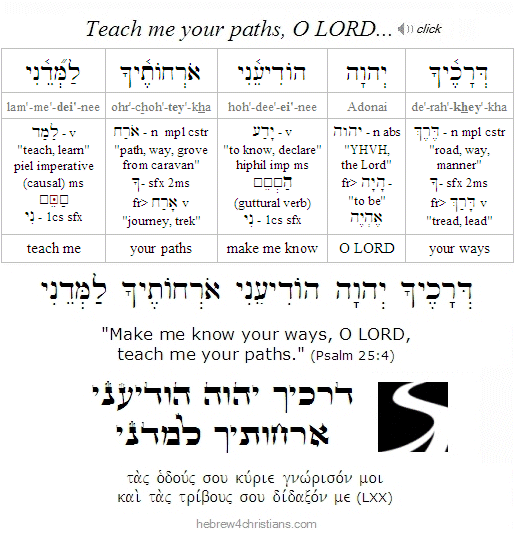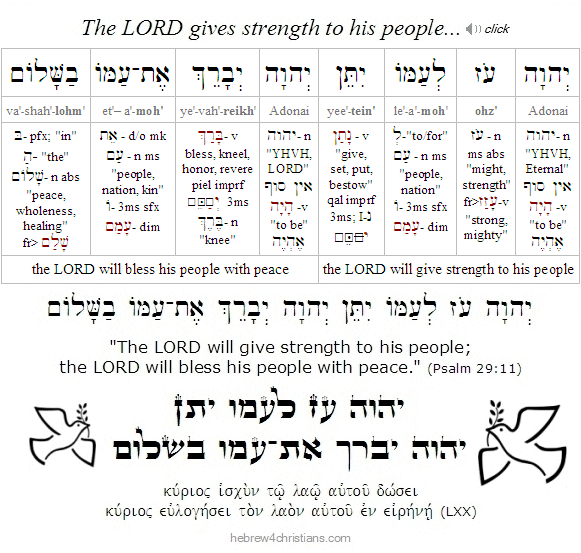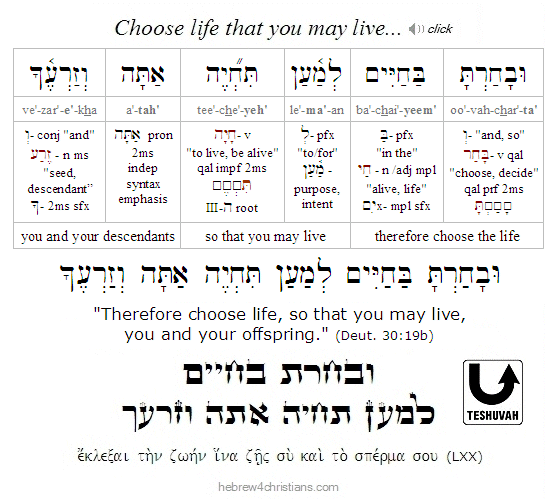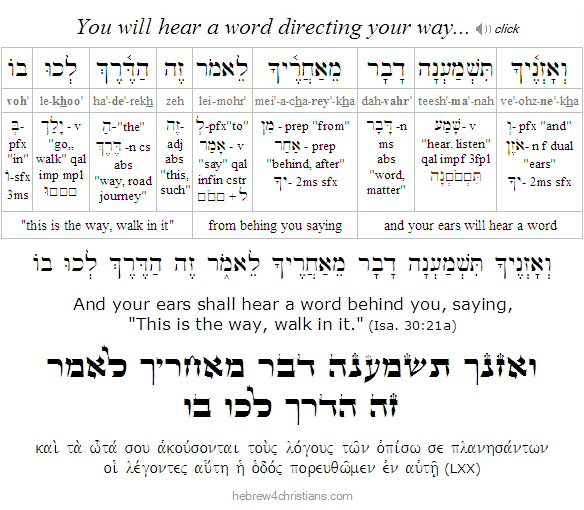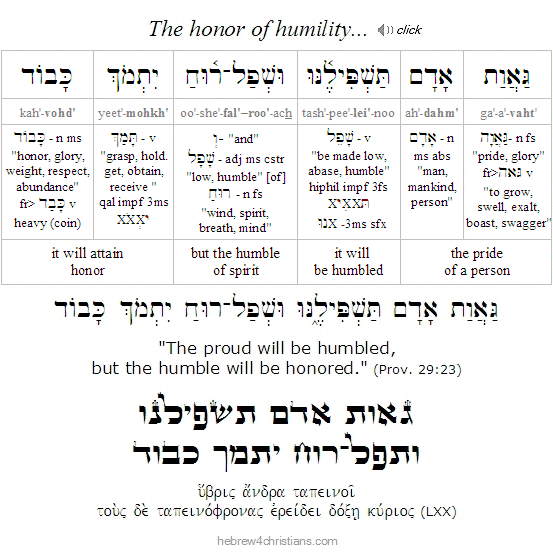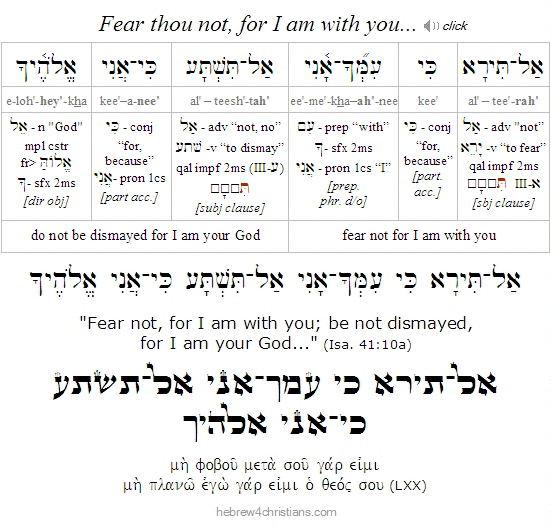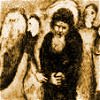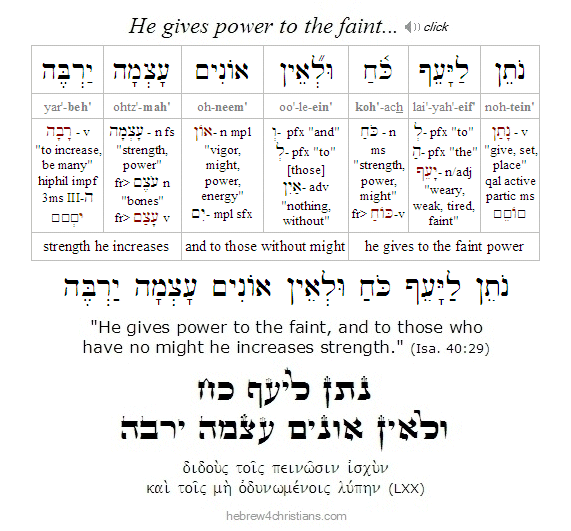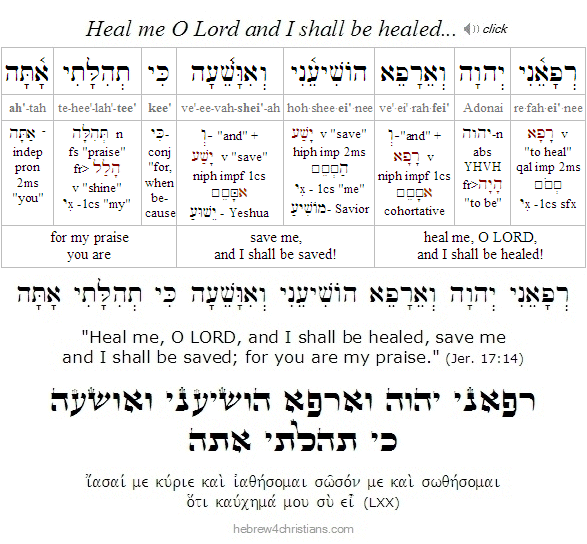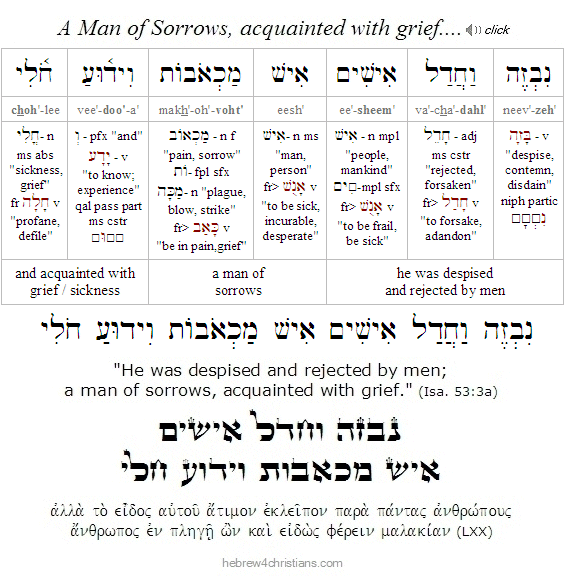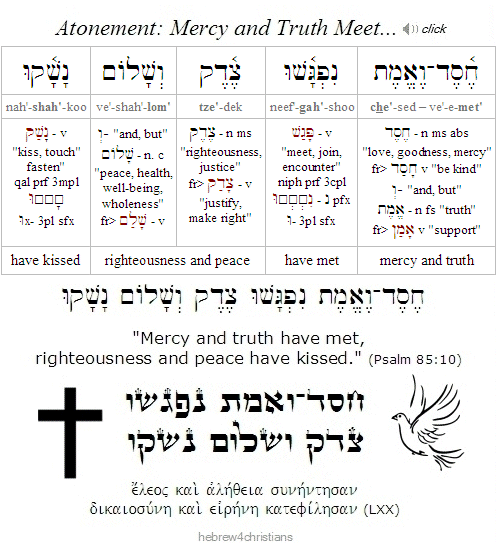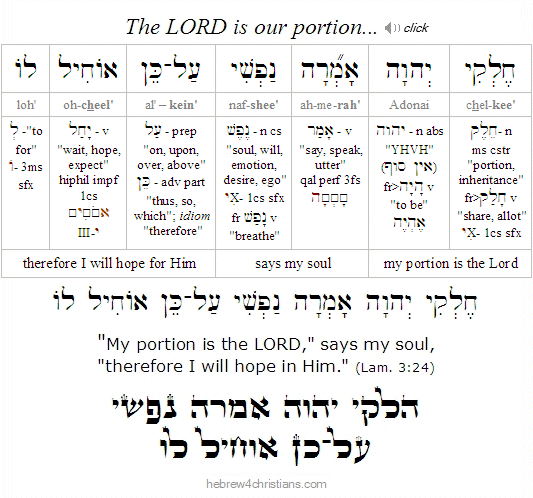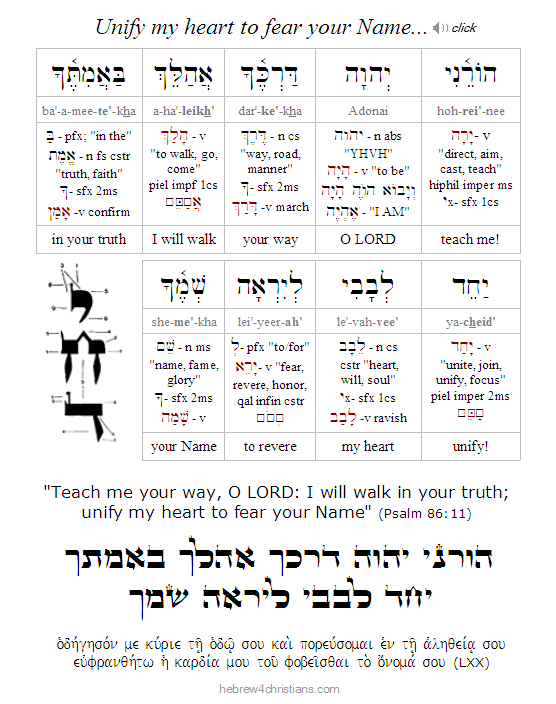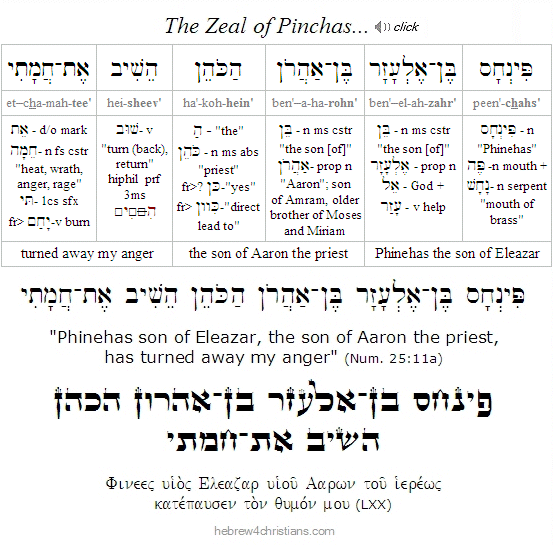|
|
|||||||||||||||||||||
 |
|||||||||||||||||||||
|
Learn Hebrew |
|||||||||||||||||||||
 |
|||||||||||||||||||||
|
Learn Torah |
|||||||||||||||||||||
|
Jewish Holiday Calendar For July 2020 site updates, please scroll past this entry....
The Summer Holidays:  Note that in accordance with tradition, holiday dates begin at sundown. Moreover, some holidays may be postponed one day if they happen to fall on the weekly Sabbath:
1. Month of Sivan (Sat. May 23rd [eve] - Sun. June 21st [day]) 2. Month of Tammuz (Sun. June 21st [eve] - Tues. July 21st [day]) 3. Month of Av (Tues. July 21st [eve] - Wed. Aug. 19th [day]) 4. Month of Elul (Wed. Aug. 19th [eve] - Fri. Sept. 18th [day]) 5. Month of Tishri (Fri. Sept. 18th [eve] - Sat. Oct. 17th [day]) - Fall holidays begin! Note: For more about the dates of these holidays see the Calendar pages....
[ The following concerns this week's Torah reading, parashat Vaetchanan, which is always read on the Sabbath following Tishah B'Av... Nachamu, nachamu... ]
Tishah B'Av Prophecies... 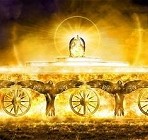 07.31.20 (Av 10, 5780) Yeshua foretold the destruction of the Second Temple when he lamented: "O Jerusalem, Jerusalem, the city that kills the prophets and stones those who are sent to it! How often would I have gathered your children together as a hen gathers her brood under her wings, and you were not willing! Behold, your house is left unto you desolate. For I tell you, you will not see me again, until you say, Barukh Haba Ba'shem Adonai: 'Blessed is he who comes in the name of the Lord.' Yeshua then left the Temple and was going away, when his disciples came to point out to him the buildings of the Temple. But he answered them, "You see all these, do you not? Truly, I say to you, there will not be left here one stone upon another that will not be thrown down." (Matt. 23:37-24:2). Note well that we are not awaiting the construction of the "Third Temple" which will be hastily erected during the time of Jacob's Trouble during the Great Tribulation, but we await the "Fourth Temple," that is, the Temple that will be built by Tzemach Tzaddik (צֶמַח צַדִּיק), namely, the Messiah the Son of David (מָשִׁיחַ בֶּן־דָוִד) who will come again to establish the Kingdom of Zion upon the earth in fulfillment of the promises of God (Zech. 6:12; Jer. 23:5). At that glorious time the mourning of the Jewish people will forgotten, as it is written: "Thus says Adonai Tzeva'ot (יהוה צְבָאוֹת): The fast of the fourth month (Tammuz), and the fast of the fifth month (Tishah B'Av), and the fast of the seventh month (Gedaliah), and the fast of the tenth month (Asarah b'Tevet), will be to the house of Judah for joy and rejoicing and for pleasant appointed seasons. Therefore love truth and peace" (Zech. 8:19). In that coming day, "The LORD will be king over all the earth. On that day the LORD will be one and his name one."
As I've mentioned repeatedly over the years, the word "Zion" (i.e., tziyon: צִיּוֹן) is mentioned over 160 times in the Scriptures. That's more than the words faith, hope, love, and countless others... And since Zion is a poetic form of the word Jerusalem, the number of occurrences swells to nearly 1,000! It is therefore not an overstatement to say that God Himself is a Zionist.... "Out of Zion, the perfection of beauty, God shines forth" (Psalm 50:2). Zion represents the rule and reign of God in the earth and is therefore synonymous with the Kingdom of God. The entire redemptive plan of God -- including the coming of the Messiah Himself and our very salvation -- is wrapped up in the concept of Zion. It is the "historiography" of God -- His "philosophy of history," if you will.
Although "Day of the LORD" (i.e., yom Adonai: יוֹם יְהוָה) is often associated with Tishah B'Av and the catastrophic destruction of the Jewish Temple, the words of the prophets were only partially fulfilled, and there awaits another Day coming when God will terribly shake the entire earth (Isa. 2:19). "For the great day of their wrath has come, and who can stand?" (Rev. 6:17). The prophet Malachi likewise says: "'Surely the day is coming; it will burn like a furnace. All the arrogant and every evildoer will be stubble, and that day that is coming will set them on fire,' says the LORD Almighty. 'Not a root or a branch will be left to them'" (Mal. 4:1). For those who are godless, the great Day of the LORD is a time of horrific judgment, but for those who belong to the LORD, it represents a day of victory and great blessing. Regarding that day the prophet Malachi said, "Then you will trample down the wicked; they will be ashes under the soles of your feet on the day when I do these things" (Mal. 4:3).
Daily Perush Podcast: God's Glory and Tishah B'Av... 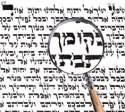 07.31.20 (Av 10, 5780) Shalom chaverim. In this "Daily perush broadcast" (see link below) I provide a quick exegesis and reading of a significant phrase in King Solomon's prayer at the dedication of the First Temple, namely, "Behold heaven and the heaven of heavens cannot contain you" (2 Chron. 6:18b), and then reflect on the meaning of these words in relation to the destruction of the Temple in Jerusalem. Click the image to listen to the perush:
Yeshua and Tishah B'Av... 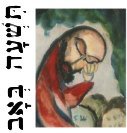 07.31.20 (Av 10, 5780) Recalll that Abraham willingly offered his son Isaac on Mount Moriah in obedience to God (Gen. 22:1-19). The Hebrew word moriah (מוריה) comes from the verb ra'ah (ראה), "to see" (with the divine Yah- [יהּ] suffix), and is first explicitly mentioned in the Torah in connection with Abraham's sacrifice of Isaac (known as the Akedat Yitzchak [עקדת יצחק] or "binding of Isaac"). There is a play on words here. It was at Moriah (literally, "seen by YHVH") that Abraham called the LORD Adonai Yireh (יְהוָה יִרְאֶה), "the LORD who sees [our need]" in reference to the provision of sacrifice of the appointed ram in Isaac's place.
Since we understand that Yeshua is the true Temple and the beginning and end of all sacrifice, what are we to make of the prophesied "Millennial Temple" (i.e., the Fourth Temple of the Millennial Kingdom - not the Third Temple spoken of during the Tribulation period in Matt. 24:15-21, 2 Thess. 2:1-4)? This Fourth Temple will be built after the Second Coming of the Yeshua as Mashiach ben David (Isa. 2:2-3; Ezek. 37:26; Micah 4:1-2, 7; Joel 3:21; Mal. 3:1, Ezek. 40-45, etc.). Does this represent, metaphorically, the presence of redeemed (ethnic) Israel (i.e., 1 Pet. 2:5), or should we expect to see a literal Temple built, complete with a restored Levitical priesthood, animal sacrifices, and so on, along the lines of Ezekiel's detailed vision (Ezek. 40-45)? "Behold, the days are coming, declares the LORD, when I will make a new covenant (בְּרִית חֲדָשָׁה) with the house of Israel and the house of Judah, not like the covenant that I made with their fathers on the day when I took them by the hand to bring them out of the land of Egypt, my covenant that they broke, though I was their husband, declares the LORD. But this is the covenant that I will make with the house of Israel after those days, declares the LORD: I will put my law (תּוֹרָה) within them, and I will write it on their hearts. And I will be their God, and they shall be my people. And no longer shall each one teach his neighbor and each his brother, saying, 'Know the LORD,' for they shall all know me, from the least of them to the greatest, declares the LORD. For I will forgive their iniquity, and I will remember their sin no more." The Temple of the LORD is already here -- in the Person of the resurrected Messiah -- and yet it will be made fully manifest in the days to come: First in the Millennial Kingdom (after Yeshua's Second Coming), and later still in olam habah (the world to come) as the eternal community of those redeemed by the Lamb of God (Rev. 21:22-23). So for those of us who hold faith in Yeshua as the Messiah, our mourning for the Temple is really mourning for the Presence of our Beloved Savior. May He come quickly, and in our days...
Our Ultimate Concern...  07.30.20 (Av 9, 5780) What we fear says a lot about us, since fear is closely linked to what we value and ultimately worship... All the world is lit up with the radiance of God our Savior. Fearing lesser things blinds us to the truth of Reality and glorifies the realm of darkness. The world system is based on slavery to such lesser gods and fears, but we are to walk in the awe of the LORD God Almighty alone, and the light of his reverence overcomes the fear of this world. As the Gerer Rebbe said: "If a man has fear of anything except the Creator, he is in some degree an idolater. For to fear is to offer worship to the thing feared, and this form of worship may be offered only to the LORD." אֶת־יְהוָה אֱלהֶיךָ תִּירָא et-Adonai · E·lo·hey'·kha · tee·ra "It is the LORD your God whom you shall fear. The fear of the Lord, yirat Adonai (יִרְאַת יְהוָה), is reverent awe and honor that resembles the great trembling of love: mekudeshet li: "With this ring I do consecrate thee..." The Scriptures repeatedly state that this fear is reisheet chochmah (רֵאשִׁית חָכְמָה) – the "beginning of wisdom" and the foundation of all true godliness and obedience.... Sin always entices us to fear the "lesser gods"; it seduces us to live in arrogance, pride, anger, envy, lust, despair, and so on. Sin expresses the opposite of godly reverence and seeks to justify cowardly indolence so that people learn to actually "love" and defend what enslaves them...
Fearing lesser gods is an affront to the glory and majesty of our Savior. We are commanded to be full of courage given by God's own spirit: It is the Lord who goes before you. He will be with you; he will not leave you or forsake you. Do not fear or be dismayed" (Deut. 31:8). "Have I not commanded you? Be strong and courageous. Do not be frightened, and do not be dismayed -- for the Lord your God is with you wherever you go!" (Josh. 1:9).
The fear of the LORD expresses the power of faith to repel the schemes and designs of the devil. Then Yeshua said to him, "Be gone, Satan! For it is written, 'You shall worship the Lord your God and him only shall you serve'" (Matt. 4:10). "Submit yourselves therefore to God. Resist the devil, and he will flee from you" (James 4:7). Ultimately, the fear of the LORD is a great gift, the underlying motive of all true teshuvah (repentance).
The Heart of Heaven...  07.30.20 (Av 9, 5780) In our Torah for this week (i.e., Vaetchanan), Moses recalled the awesome revelation of the Torah at Sinai, describing how the mountain "burned with fire unto the heart of heaven" (בּעֵר בָּאֵשׁ עַד־לֵב הַשָּׁמַיִם) when the Ten Commandments were inscribed upon the two tablets of testimony: "And you came near and stood at the foot of the mountain, while the mountain burned with fire unto the heart of heaven, wrapped in darkness, cloud, and gloom. Then the LORD spoke to you out of the midst of the fire. You heard the sound of words, but saw no form; there was only a voice. And he declared to you his covenant, which he commanded you to perform, that is, the Ten Commandments, and he wrote them on two tablets of stone" (Deut. 4:11-13). חֶסֶד וֶאֱמֶת אַל־יַעַזְבֻךָ che'·sed · ve·e·met · al - ya·az·voo'·kha "Let not love and truth forsake you; Click to listen and learn the Hebrew text:
The Battle Belongs to the Lord...  07.29.20 (Av 8, 5780) In light of the threat of an invasion from the east, King Jehoshaphat (המלך יהושפט) of Judah prayed: "O LORD, God of our fathers (יהוה אֱלֹהֵי אֲבֹתֵינוּ), are you not God in heaven? You rule over all the kingdoms of the nations. In your hand are power and might, so that none is able to withstand you... O our God, will you not judge them? For we are powerless against this huge army that attacks us; we do not know what to do: but our eyes are upon you (כִּי עָלֶיךָ עֵינֵינוּ)... After he prayed, the Spirit of God spoke forth: "Thus says the LORD to you, 'Do not be afraid and do not be dismayed at this great horde, for the battle is not yours but God's'" (2 Chron. 20). Amen, Lord, our eyes are upon you...
Tishah B'Av: Why was the Temple Destroyed? 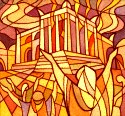 07.29.20 (Av 8, 5780) Tishah B'Av remembers the destruction of the two Holy Temples of Judaism. According to the Talmud (Yoma 9b), the first Temple was destroyed (586 BC) because of the sins of idolatry, immorality, and bloodshed, but the Second Temple was destroyed (70 AD) because of what the sages call "baseless hatred." This baseless hatred (called sinat chinam) is considered a more serious offence than the earlier sins that led to the destruction of the First Temple: It took 70 years to rebuild the First Temple, but Jews are still waiting to rebuild the Second Temple, even after more than 1,900 years.... Why was the first Sanctuary destroyed? Because of three [evil] things which prevailed there: idolatry, immorality, bloodshed. But why was the second Sanctuary destroyed, seeing that in its time they were occupying themselves with Torah, [observance of] precepts, and the practice of charity? Because therein prevailed hatred without cause. That teaches you that groundless hatred is considered as of even gravity with the three sins of idolatry, immorality, and bloodshed together. (Talmud: Yoma 9b) Though sinat chinam (שִׂנְאַת חִנָּם) is often translated as "baseless hatred," it literally means "hatred of grace (חֵן, chen)," that is, an aversion to using ayin tovah (a good eye) to see good in others. Just as God freely loves, so the devil freely hates... In essence, then, sinat chinam is the rejection of God's grace. But since Yeshua is the embodiment of all of God's grace (John 1:17, etc.), sinat chinam is ultimately a rejection of His ministry... Is it any wonder, then, that our Lord foretold the destruction of the Second Temple based on Israel's hatred and rejection of Him (Matt. 24:2)? For more on this topic see:
Site Tools: Free Hebrew Training Site...  07.29.20 (Av 8, 5780) I am beginning to put together a new website (connected with this site) that will provide various audio Hebrew training topics for new learners of Biblical Hebrew. It will be phone and tablet friendly as well! Be sure to check it out!
Daily Dvar Podcast: The Ineffable Name... 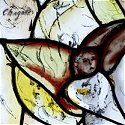 07.29.20 (Av 8, 5780) The "tetragrammaton," or the four-letter name YHVH (יהוה), is regarded as God's "proper name" in the Scriptures, though it is better to understand it as a metaphorical term that points to God's ineffable and infinite essence (אין סוף). This is both clearly taught in Torah and reaffirmed in the New Testament Scriptures. In this "Daily Dvar" audio broadcast I discuss the ineffable Name of the Lord. I hope you will find it helpful.
Every Prayer Answered...  07.29.20 (Av 8, 5780) If you earnestly pray yet are tempted to think that God is not responding, remind yourself that every prayer uttered to God from a heart of honest faith, that is, from a heart that trusts in God's redemptive love given in Messiah, is indeed answered, and not a syllable goes unheeded or will be lost before heaven. Just as assuredly we believe that no one will get away with evil -- that justice will eventually be served and all wrongs redressed at the bar of Eternal Judgment -- so we understand that every utterance of the heart of faith finds compassionate response from the heart of heaven. Indeed the essence of teshuvah (return, "repentance") is heartfelt prayer, and therefore when we bring honest words and turn back to accept the truth, God's mercy and compassion are decisively evoked (1 John 1:9). The most important thing is not to lose faith, however, but to believe that God hears you and will indeed answer the cry of your heart. Decide to believe and settle your expectation. Never give up hope. God is faithful; He will do it (1 Thess. 5:24). הַשְׁמִיעֵנִי בַבּקֶר חַסְדֶּךָ hash·mee·ei'·nee · va·bo'·ker · chas·de'·khah "Cause me to me hear your lovingkindness in the morning,
The Mysterious Name... 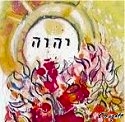 07.29.20 (Av 8, 5780) The "tetragrammaton," or the four-letter name YHVH (יהוה), is regarded as God's "proper name" in the Scriptures, though it is better to understand it as a metaphorical term (paronomasia) that points to God's ineffable and infinite essence (אין סוף). This is clearly taught in Torah and reaffirmed in the New Testament Scriptures. For instance when Moses asked for God's Name, God replied, ehyeh asher ehyeh (אֶהְיֶה אֲשֶׁר אֶהְיֶה), "I AM that I AM" (or "I will be what I will be"), abbreviated simply as ehyeh (אֶהְיֶה), "I AM" (Exod. 3:14). Note that God identified himself with Being itself, since ehyeh is the Qal imperfect form of the verb hayah (הָיָה), meaning "to be."
There are two places in the Torah when God explicitly revealed the meaning of the name YHVH (יהוה) to Moses. Both occurred at Sinai. The first occurred at the outset of Moses' ministry (at the burning bush when he was commissioned to be Israel's deliverer), and the second occurred after incident of the Golden Calf during the time of the revelation of the law at Sinai. It was only after Moses despaired and confessed the people's need for salvation that the LORD instructed him to meet him again at a place (i.e., makom: מָקוֹם) on the top of Sinai, where He would descend in the cloud to "declare His Name" (Exod. 33:17-34:7). This dramatic experience of revelation was later called middot ha-rachamim, or the revelation of the attributes of God's mercy, which prefigured the New Covenant...
Return to your heart...  07.28.20 (Av 7, 5780) From our Torah portion this week (Vaetchanan) we read, "Know therefore today and return to your heart (והשׁבת אל־לבבך), for the LORD is God in heaven above and on the earth beneath; there is no other" (Deut. 4:39). Here again we see the centrality of the heart as the mode to encounter God (Luke 17:21). Savor the phrase, "Know therefore today and return to your heart..." It the heart that is the place of connection with God... As Yeshua said, "Behold, I stand at the door and knock. If anyone hears my voice and opens the door, I will come in to him and eat with him, and he with me" (Rev. 3:20). Today is the day to "return to your heart" and receive again God's love for your soul...
Teshvuah of Wisdom....  [ The following is related to Tishah B'Av and the theme of teshuvah (repentance)... ] למנות ימינו כן הודע leem·noht · yah·mei'·noo · kein · hoh·da "Teach us to number our days Click to listen and learn the Hebrew text: Despite the frailty and brevity of our days, may it please God to shine the power of His radiance upon us and to establish our works for His praise. May He help us to "number our days" so that we may obtain levav chokhmah (לְבַב חָכְמָה) - a heart of wisdom to live according to His will (James 1:5). Above all else, may the "God of our Lord Yeshua the Messiah, the Father of Glory (אֲבִי הַכָּבוֹד), impart to you a spirit of wisdom and of revelation in the knowledge of Him, having the "eyes of your hearts" (ὀφθαλμοὺς τῆς καρδίας) enlightened, that you may know what is the hope to which he has called you" (Eph. 1:17-18). May you be strong, resolute, and fully focused on our LORD, chaverim. Amen.
Praying to Pray...  07.27.20 (Av 6, 5780) Our Torah portion for this week (Vaetchanan) begins, "And I pleaded (ואתחנן) with the LORD at that time, to say..." (Deut. 3:23), which implies that we must first pray in order to be able to pray, that is, we make ourselves ready to pray by finding the inner freedom and grace to groan before the LORD.... If you can't find the words to pray, then plead with the LORD and ask for the Holy Spirit to groan on your behalf (Rom. 8:26). "Ask, and it will be given to you; seek, and you will find; knock, and it will be opened to you" (Matt. 7:7). "O Lord, open my lips, and my mouth will show forth your praise" (Psalm 51:15). אֲדנָי שְׂפָתַי תִּפְתָּח Adonai · se·fa·tai · teef·tach "O Lord, open my lips, Click to listen and learn the Hebrew text:
The Word Shalom... 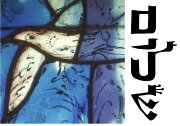 [ Sometimes it can be helpful to use "non-linear" methods to consider Scripture, though of course reading in context while using logic and the historical-grammatical method is the primary way we come to ascertain the truth of God. The following, however, explores the word "shalom" based on the discussion of various Torah sages who have used gematria and other approaches to help elicit additional insight into the word. If you do not find this helpful please skip it!] 07.27.20 (Av 6, 5780) One of the most well-known Hebrew words is shalom (שָׁלוֹם), usually translated as "peace." The word comes from a root (שׁלם) meaning whole or complete. Shalom does not merely mean the absence of strife as much as healing, wholeness, and well-being despite the presence of strife. For example, after he wrestled with the Angel of the LORD, the Scripture says "Jacob came whole" (וַיָּבֹא יַעֲקֹב שָׁלֵם), connecting his painful struggle to receive the blessing with his healing (Gen. 33:18).
Comfort after Tishah B'Av... 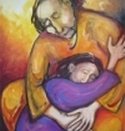 [ With the advent of this coming Sabbath we have seven weeks to prepare for the new year (Rosh Hashanah) and the High Holidays - a "jubilee" season that heralds the return of Yeshua... ] נחמו נחמו עמי na·cha·moo · na·cha·moo · am·mee "Comfort, comfort my people, says your God"
Shavuah Tov Podcast: Parashat Vaetchanan...  07.26.20 (Av 5, 5780) Shavuah tov, chaverim. Our Torah reading for this week (i.e., Vaetchanan) is always read on the Sabbath that immediately follows the somber holiday of Tishah B'Av (תשעה באב). In Jewish tradition, this special Sabbath is called "Shabbat Nachamu" (שַׁבַּת נַחֲמו), "the Sabbath of Comfort" and assigned the prophetic portion from the Book of Isaiah that begins with the famous phrase: נַחֲמוּ נַחֲמוּ עַמִּי - Nachamu, Nachamu ami - "Comfort ye, comfort ye, my people..." (Isa. 40:1). With the advent of this special Sabbath, we have just seven weeks to prepare for the new year (i.e, Yom Teruah or "Rosh Hashanah") and the High Holidays - a "jubilee" season that heralds the return of Yeshua.
Parashat Vaetchanan - ואתחנן 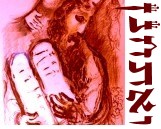 [ Our Torah reading for this week, parashat Vaetchanan, is always read on the Sabbath immediately following Tishah B'Av, called Shabbat Nachamu, or "the Sabbath of Comfort." ]
Blessing the Jewish People... 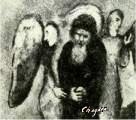 07.24.20 (Av 3, 5780) Do you have a Jewish heart? If you say that you love the "LORD God of Israel" (יהוה אֱלהֵי יִשְׂרָאֵל) -- and it's clear that the LORD God of Israel loves the Jewish people -- it follows that you should likewise love the Jewish people (see Deut. 7:6-8; 14:2; 2 Sam. 7:23-24; 1 Kings 8:53; 10:9; 1 Chron 17:20-21; Isa 43:1-3; Jer. 31:31-37; Ezek. 36:24-28; Rom. 11:1-2;11:28; Hos. 11:1-11, etc.). After all, the LORD Yeshua is called מֶלֶךְ הַיְּהוּדִים / melech ha-Yehudim: the "King of the Jews" (Matt. 2:2, 27:11, etc.), and the very term "Mashiach" [i.e., "Christ"] is a regal term denoting the anointed King of Israel. Christians who pray to "Jesus Christ" are really praying to Yeshua as the anointed King of the Jews... And one day (very soon) Yeshua will indeed return to Jerusalem, the "City of the Great King" (Matt 5:35), to assume the throne of David and complete the redemption originally promised to the Jewish people (Zech. 12:1-13:1; 14:1-9, Ezek. 37:12-14, etc.). God will prove faithful to ethnic Israel. To deny this is to radically question God's faithfulness to the "church." Indeed, let me say this as plainly as I can: Churches or teachers who claim that God has abandoned ethnic Israel are directly impugning the credibility of the gospel message itself. Yes, it's that serious of an issue...
Note: For more information see: "The Importance of Blessing the Jewish People."
The Plea of Moses... 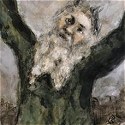 [ The following entry is related to our Torah portion this week, parashat Devarim... ]
Daily Dvar Podcast: Blessing of Holy Desperation...  07.24.20 (Av 3, 5780) Shalom chaverim yakarim. In this "Daily Dvar broadcast" (see link below) I discuss what I have called the "blessing of holy desperation," or that very special blessing of needing God so viscerally that you would otherwise fall apart or even self-destruct apart from his ongoing intervention in your life. I hope you will find it helpful.
Shabbat Chazon (שבת חזון)  07.24.20 (Av 3, 5780) Parashat Devarim is always read on the Sabbath before the 9th of Av, the traditional date on which both the First and Second Temples were destroyed. This Sabbath is called "Shabbat Chazon" (שַׁבַּת חַזוֹן), the "Sabbath of Vision," so named from the opening verse of the Haftarah: "Chazon Yeshayahu ven-Amotz" (חֲזוֹן יְשַׁעְיָהוּ בֶן־אָמוֹץ), the "Vision of Isaiah, the son of Amoz" (Isa. 1:1). When it was first recorded, Isaiah's vision of the destruction of the Temple was still future, and the Jews still had a chance to repent before the great tragedy befell them. However, since they did not repent, calamity finally overtook the inhabitants of Judah.... Despite this devastation, however, the Berditchever Rebbe saw in Shabbat Chazon a distant "vision" of the Third Temple of Messianic times, as indicated by Moses' farewell address as a "second Torah" (i.e., mishneh ha'torah: מִשְׁנֵה הַתּוֹרָה), that is, a prophetic retelling given to the generation that finally would enter the Promised Land. Despite a long period of exile and mourning, the Sabbath before Tishah B'Av foretells the World to Come, a time when our redemption will be complete and all traces of the pain of our past forgotten, as was spoken by Moses himself (Deut. 32:43) and later by the prophet Zechariah: "Thus says the LORD of hosts: 'The fast of the fourth month (i.e., Tammuz) and the fast of the fifth (i.e., Tishah B'Av) and the fast of the seventh (Gedaliah) and the fast of the tenth (Asarah B'Tevet) shall be to the house of Judah seasons of joy and gladness and cheerful feasts. Therefore love truth and peace'" (Zech. 8:19). The time is coming when the sorrows of our exile will be turned into the joys of redemption!
Note: For more on this topic see: "Fast Days of the Jewish Year" and "Vision of Destruction: Further Thought on Shabbat Chazon."
Created for a Purpose...  07.23.20 (Av 2, 5780) It has been said that God sends each soul into the world with a special message to deliver, a revelation that only he or she can disclose... No one else can bring your message to this world - only you can do this. And since God is entirely unique, you are called to be who you were created to be, not someone else. On his deathbed Reb Zusya said, "I am not afraid that the Holy One will ask me, 'Zusya, why were you not more like Moses?' Rather, I fear the Holy One will say, 'Zusya, why were you not more like Zusya?'
Hallowed be Thy Name...  07.24.20 (Av 3, 5780) There may come a severe test of your faith, when it would be better to give up your life than to deny God's will, since God's truth is so valuable that to repudiate it would be worse than death itself... A verse from the Torah reads: "You shall not profane my holy name, that I may be made sacred among the people of Israel" (Lev. 22:32), which the early sages said provides the basis for "kiddush HaShem" (קידוש השם), a phrase that means honoring God's truth even if that might require giving up your life to do so. (On the other hand, denying God's truth or blasphemy is called "chillul HaShem" [חילול השם] a phrase that means disregarding God's authority over our lives.) Sanctifying God's name means we regard our relationship to God to be an end in itself - our ultimate concern - and there is therefore nothing higher that may challenge our duty before heaven. "Seek first the kingdom of God and his righteousness" (Matt. 6:33). Indeed our mortal life in this fleeting world is a means to the end of reaching our eternal destiny, and esteeming the means above the end is therefore idolatry. In other words, we exist only because of God, and when we live according to God's truth, we take a firm stand against corrupt culture by denying its its godless ideology, its benighted value system, its phony relativism, its arrogant skepticism, and so on.
Kiddush HaShem may be understand both literally and metaphorically. Literally understood, kiddush HaShem (i.e., martyrdom) is a possibility, one of the severest tests that may be given to the soul, and the temptation is to shrink back from the threat of death by denying the faith... Metaphorically understood, kiddush HaShem is a necessity, an essential act of the will that decides to "take up the cross" and follow Yeshua, and the temptation is to minimize the truth, to compromise the faith, and to slowly fade away... Yeshua asks, "What will it profit a person if he gains the whole world and forfeits his soul?" (Mark 8:36). Indeed, finding your life, value, and "place" here is to exile yourself from the promise of heaven. As Yeshua said, "Whoever finds his life will lose it, and whoever loses his life for my sake will find it" (Matt. 10:39). What is required, in other words, is categorically everything, with nothing left over...
We see an example of both chillul HaShem and kiddush HaShem in the life of the Apostle Peter. On the one hand, though he had boldly professed that he would be willing to die for Yeshua, he later denied that he even knew his Savior and friend (Luke 22:33-34)... After his teshuvah (i.e., repentance) however, Peter became wholehearted and fearless, and Christian tradition says he eventually died as a martyr under the tyranny of wicked Roman Emperor Nero... Likewise, in our effort to relate to people of different faith, we may be tempted to soften the demands of the gospel or to minimize the deity of Messiah. Sadly I've seen this happen a lot among Gentiles who get so enamored with the Jewish roots of the Christian faith that they begin to question, then outright deny the central Torah of our Messiah. We do not confuse the covenants of God, for this leads to double-mindedness and is regarded as spiritual adultery (see Rom. 7:1-4). It is chillul HaShem - the desecration of the Name above all Names - to turn away from the meaning and message of the cross of Messiah (Gal. 6:14; 1 Cor. 2:2). The price of being loyal to Messiah is mesirut nefesh (מְסִירוּת נֶפֶשׁ) -- surrendering your life by "taking up the cross." The cross is a scandal to religion and all other attempts to whitewash the truth about the human condition (Gal. 5:11). כִּי־טוֹב חַסְדְּךָ מֵחַיִּים kee-tohv · chas·de·kha · mei·chai·yeem "Because your lovingkindness is better than life, Click to listen and learn the Hebrew text:
כֵּן אֲבָרֶכְךָ בְחַיָּי ken · a·va·re'·khe·kha · ve·chai·yai "So I will bless you in my life; Click to listen and learn the Hebrew text:
The Voice of Our Words.... 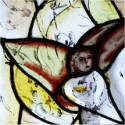 07.23.20 (Av 2, 5780) According to Jewish tradition, it was on Tishah B'Av (the ninth of Av) when the people wept over the report of the spies, a lapse of faith so serious that it provoked God to decree that the very generation He redeemed from Egypt would die in the exile of the desert (see Num. 13-14). As Moses later recounted this tragic event, he said something peculiar: "The LORD heard the 'voice of your words' (קוֹל דְבַרִים) and was angry..." (Deut. 1:35). The grammar here is unusual, for the text could have simply said, "the LORD heard your words," but the Torah adds something else, the idea of "emotional tone," or the manner, the words were spoken... Sometimes it is not so much what you say that matters, but how you say it. Words of the heart are expressed more by tone, the "voice of the words," than by the words themselves...
My LORD my God...  07.23.20 (Av 2, 5780) As we draw close to God and cleave to his heart, we will be delivered from the pain of our fears, despite the ongoing darkness of ha'olam ha'zeh (הָעוֹלָם הַזֶּה), this present age (Psalm 119:105). As King David said, Adonai ori v'yishi, mimi ira: "The LORD is my light and my salvation" – literally, "my Jesus," my Yeshua – "whom shall I fear? Adonai ma'oz chayai: mimi efchad: "The LORD is the strength of my life, whom shall I dread?" (Psalm 27:1). Yeshua is the Light of Life (אוֹר הַחַיִּים), the Healer of the fearful heart, the I-AM-WITH-YOU-ALWAYS One. His love overcomes all our fears. As the apostle Paul asked, "If God is for us, who can be against us?" (Rom. 8:31). יְהוָה אוֹרִי וְיִשְׁעִי מִמִּי אִירָא Adonai · o·ree · ve·yeesh·ee · mee·mee · ee·ra "The LORD is my light and my salvation; whom shall I fear? Click to listen and learn the Hebrew text: And as we hear the "footsteps of the Messiah" (עִקְּבוֹת מְשִׁיחַ) approaching, let us remember the words of our Savior: "when you see these things taking place, you know that the time is near, right at the door" (Mark 13:29), and let us therefore encourage one another to wake up and come alive: "Awake, O sleeper, and arise from the dead, and Messiah will shine on you!" (Eph. 5:14). The message of teshuvah (repentance, "turning back to God") is always, "Wake up - you are living a nightmare." There is only one remedy, and that is found by coming to the Divine Light and opening your heart to the love and Presence of God.
He Carries us Through...  [ The following entry is related to our Torah portion this week, parashat Devarim... ]
Jesus in Context... 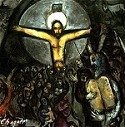 07.22.20 (Av 1, 5780) A basic principle of Bible interpretation is succinctly stated in the axiom: "a text without a context is a pretext," and therefore we must endeavor to understand the New Testament in light of the Torah, not the other way around... Without the context of Torah, the meaning and terms of the New Testament will be obscure and subject to misunderstanding. Indeed, we must remember that the Messiah was "embedded" in the Jewish culture of his day (see Gal. 4:4-5), and that he was fluent in Torah reading and study (see Luke 4:16-21; John 4:22). Moreover, Yeshua plainly said that the Jewish Scriptures testify of Him: "And beginning with Moses and all the Prophets, he interpreted (διερμηνεύω) to them in all the Scriptures the things concerning himself" (Luke 24:27; John 5:39). We study Torah to know Yeshua, the "Living Torah" better, as he said: "Therefore every scribe who has been trained for the kingdom of heaven is like a master of a house, who brings out of his treasure what is new and what is old" (Matt. 13:52). בלבי צפנתי אמרתך be·lee·bee · tza·fan'·tee · eem·rah·te'·kha "In my heart I have treasured your word Click to listen and learn the Hebrew text:
Expressing Anger to God... 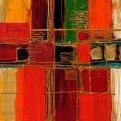 07.21.20 (Tammuz 29, 5780) From our Torah this week (i.e., Devarim) we read: "You were not willing to go up but rebelled at the word of the LORD your God. And you murmured in your tents and said, 'Because the LORD hates us he has brought us out of the land of Egypt...'" (Deut. 1:26-27). We may decry the childish insolence of the people, we lament their lack of faith, and yet God was still speaking through Moses to Israel... The sages ask whether we can ever be justifiably angry at God, and they answer that surely we can, because otherwise we could never love Him "bekhol levavkha," with all our heart (Deut. 6:5). Indeed, how can we claim to love God if we withhold the truth, lie to ourselves, and attempt to hide who we really are from Him? If you are angry at God, he already knows, so why the pretense? Being angry with God is part of being a real person in a real relationship with Him, and allowing yourself to express the truth of your heart to him is a sign of trust... Forgiving God means letting go of your grudges over matters infinitely beyond your control.
Thank God that there is real healing for our inner dividedness, ambivalence, and disordered emotions, but such healing demands rigorous honesty. As Soren Kierkegaard rightly observed: "No person is saved except by grace; but there is one sin that makes grace impossible, and that is dishonesty; and there is one thing God must forever and unconditionally require, and that is honesty." Therefore we are instructed to confess our faults one to another, and pray for one another, that we may be healed (James 5:16). May the LORD our God help each of us to be wholehearted in our devotion to Him. Amen.
Daily Dvar Podcast: Is Covid-19 judgment from God?  07.21.20 (Tammuz 29, 5780) Shalom chaverim. In today's "Daily Dvar" audio broadcast (see link below) I discuss the question of whether the Covid 19 virus is a judgment from heaven, or if not, how we might attempt to understand its occurrence in light of the sovereignty and greatness of God. Therefore I first range over a discussion of the attributes of God revealed in Scripture and consider his providential care for creation despite the presence of moral and natural evil in the world. Along the way I discuss the realm of possibility and God's decrees, and how he works "all things together" for our ultimate good and for the glory of his name. I hope you will find it encouraging, friends.
The Kingdom of God... 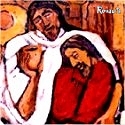 07.20.20 (Tammuz 28, 5780) Yeshua told his followers that the Kingdom of God (i.e., mamlekhet Adonai: ממלכת יהוה) is "within you" (Luke 17:21). This teaches us that the reign of the Spirit is not to be found "out there" nor is the kingdom to be regarded as a political structure of this world, but is realized in spiritual relationship - namely, the communion between the LORD God with your heart and your heart with the LORD God... When we learn to believe clearly, Yeshua says we can experience the divine Presence within our hearts and among ourselves. As we turn to God, may we recognize that who we are is more vital than our outer appearance and contingent circumstances. Life in the kingdom means having a new identity, being a new creation (בְּרִיָּה חֲדָשָׁה), and that changes everything (2 Cor. 5:16-17).
Following Yeshua...  07.20.20 (Tammuz 28, 5780) When Yeshua says "follow me," he doesn't mince words or ask for the impossible; neither does he seek "admirers" or the celebrity of mere men. To follow Yeshua means to walk along the same road he did, not in the physical sense, of course, but in the way or "how" of the road... To "walk as he walked" means your life will share his heart, vision, and spirit as much as is possible in your present circumstances. The life of the Teacher is the road; his heart voices the spirit that calls the disciple ahead; he prepares a place for you in the communion of his love. May the Lord help you to press on toward the goal of the upward call in Yeshua the Messiah (Phil. 3:14). Amen. "What dreadful untruth it is to admire in relation to the truth instead of following it... When there is no danger, when there is dead calm, when everything is favorable to Christianity, it is all to easy to confuse an admirer with a follower, and this can happen very quietly; the admirer can die in the delusion that the position he took was the true one. Give heed, therefore, to the contemporaneity of Christ" - Soren Kierkegaard (Practice in Christianity). Click to listen and learn the Hebrew text:
The City of the King... 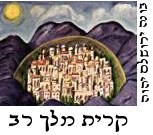 [ The following is related to the fast of Tishah B'Av, which begins Wednesday, July 29th.... ] For more on this, see "The Significance of Zion and the Tragedy of Tishah B'Av."
The Will to Believe (לִשְׁמוֹר אֱמוּנִים)  [ The following entry is related to our Torah portion this week, parashat Devarim... ]
Tishah B'Av - July 29th-30th 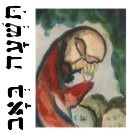 07.20.20 (Tammuz 28, 5778) Tishah B'Av (תשעה באב, or the "ninth [day] of [the month of] Av") is an annual fast day of mourning that recalls the many tragedies that have befallen the Jewish people over the centuries, but most especially the destruction of the Holy Temple and the ongoing galut (exile) of Israel. This year Tishah B'Av begins Wednesday, July 29th at sundown and runs 25 hours until Thursday, July 30th, one hour after sundown. The customs for observing the fast are similar to those of Yom Kippur.
Tishah B'Av allows us to express heartfelt grief over the loss of Zion and therefore over the fraility of our human condition. During this time it is appropriate to grieve over our sins and to shed tears that attest to lev nishbar ve'nidkeh, a "broken and crushed heart" (Psalm 51:17). Indeed, during the entire "Three Weeks of Sorrow" we read selections from the prophets that forewarn of the coming destruction of the Temple (churban) and the subsequent exile of the Jewish people (galut). During this time of the year, we listen to the lamentations of the prophet Jeremiah crying out for our repentance...
Shabbat Chazon (שבת חזון)  [ The Sabbath preceding the somber holiday of Tishah B'Av is called Shabbat Chazon... ] "Hear, O heavens and give ear, O earth, When it was first recorded, Isaiah's vision of the destruction was still future, and the Jews still had a chance to repent before the great tragedy befell them. However, since they refused to turn back to God, calamity overtook them. Today the Haftarah is traditionally chanted to the same haunting melody as Megilat Eichah (Lamentations), written by the prophet Jeremiah, who was an eyewitness to the destruction and fall of Jerusalem.
During the last nine days of the Three Weeks of Sorrow it is common to confess the sins in our lives that likewise contribute to the lack of God's Presence in our midst. Hashivenu Adonai, elekha ve'nashuvah; chadesh yamenu kekedem: "Turn us back to You, O LORD, and we shall be turned; renew our days as of old" (Lam. 5:21).
Though Shabbat Chazon is a time of mourning, it is also a time for hope. The Torah reading for this Sabbath is always parashat Devarim, the first portion of the Book of Deuteronomy. In this reading, Moses details the victorious battles with Sihon the king of Amorites and Og the king of Bashan. Because it speaks of God's victory, the sages recommended envisioning the future Temple that will be built by the Messiah at this time. According to Jewish tradition, after the Messiah comes and restores Israel, Tishah B'Av will become one of the happiest days of the year (and may He arrive soon and in our days). L'shavuah tov, chaverim....
Shavuah Tov Podcast: Parashat Devarim...  07.19.20 (Tammuz 27, 5778) Our Torah reading for this week (i.e., parashat Devarim) is the very first portion from the Book of Deuteronomy (ספר דברים), which is always read on the Sabbath that immediately precedes the somber holiday of Tishah B'Av (תשעה באב). In Jewish tradition, this special Sabbath is called "Shabbat Chazon" (שַׁבַּת חַזוֹן), "the Sabbath of Vision," since the Haftarah that is read (i.e., Isa. 1:1-25) comes from the vision of the prophet Isaiah (ישעיהו הנביא) regarding the destruction of the Holy Temple in Jerusalem. In both Jewish tradition and liturgy, teshuvah (repentance) and viduy (confession of sin) are the themes of this preparatory Sabbath.
The Summary Book of Torah... (שבת דברים) 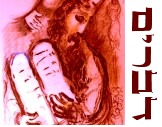 07.19.20 (Tammuz 27, 5778) Shavuah tov, friends. This week we begin reading the concluding book of the Torah, called Sefer Devarim (ספר דברים), so named from the phrase eleh ha'devarim ("these are the words...") found in its opening verse (see verse below). In our English Bibles, Sefer Devarim is known as the Book of "Deuteronomy," from a Greek word meaning "second (or repeated) law" (i.e., δευτερονόμιον), a term used to translate the phrase mishneh ha-Torah (i.e. משׁנה התורה, "copy of the Torah," in Deut. 17:18). Generally speaking, this book represents Moses' "farewell address" to the people of Israel before he died wherein he reviewed the history and the laws given to the people and repeatedly warned that obedience would bring blessing while disobedience would bring disaster. The series of personal discourses (or sermons) in this book all have the tone of rebuke and admonition, and indeed some of the sages have said it resembles a sort of "deathbed blessing" not unlike Jacob's blessing given to his sons...
Daily Dvar Podcast: God is in Control...  07.17.20 (Tammuz 25, 5778) Shalom chaverim. In this new "Daily Dvar" broadcast (see link below), I remind you that God is the Master of the Universe, the Sovereign Power and Glory over all of creation, and that nothing can possibly happen apart from his ultimate purposes. This message is vital in our world today, where so many forget the truth of the Lord God Almighty and therefore live in fear over various existential threats to their physical lives. We find comfort and strength knowing that our Heavenly Father oversees all things and works all things together for our blessing. The Lord is our Good Shepherd and he carefully attends to our way. I hope you will find this broadcast helpful. Shabbat Shalom!
The Sanctity of your Heart... 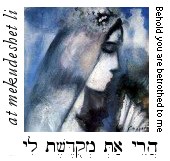 [ The following entry concerns this week's Torah reading, parashat Mattot-Masei... ]
Awaken to the Spirit...  07.17.20 (Tammuz 25, 5778) "You do not know what spirit you are of..." (Luke 9:55). Yeshua's words imply that each of us has the responsibility to know ourselves (γνῶθι σεαυτόν), and to learn to endure (and overcome) the natural motives and focus of our hearts. We discover the truth of our spiritual condition in the midst of our daily frustrations, as we experience conflict, opposition, and the inner groan that arises from pressure and disappointment. Spiritual growth means learning to transcend our negative reactions, to stop cursing our conflicts, and to awaken to the blessings that surround and pervade our way. God's grace enables us to open our eyes so that we may "choose life and live" (Deut. 30:19). Our daily struggle with sin reveals the contradiction between the ideals of our faith and the spontaneous reactions of our heart.... We live in between the "is" and the "ought," the real and the ideal (though often we deny one or the other). The impulse to despair, to be angry, to complain and curse our experience can be transformed into an opportunity to pray, to ask God for help, and to refocus on what is real. This is the "hidden blessing" (ברכת סוד) of our troubles. When we learn to surrender to God's Presence, we can breathe in his peace and love, despite the grief we encounter over ourselves and others. When we come to the light, and do not deny the truth about our condition, we can honestly ask the LORD for healing (Heb. 4:16). When we seek for the good - and even bless the struggle - we express our trust that God will use our sorrow to help us grow and to bring beauty from our ashes (2 Cor. 7:10). Hashivenu: "Turn us back to you, O LORD, and we shall be turned..." הֲשִׁיבֵנוּ יְהוָה אֵלֶיךָ וְנָשׁוּבָה ha·shee·vei'·noo · Adonai · e·ley'·kha · ve·na·shoo'·vah "Turn us back to you, O LORD, and we shall be turned; Click to listen and learn the Hebrew text: Again, our daily struggle with sin reveals the contradiction between the ideals of our faith and the spontaneous reactions of our heart. If we are able to find the courage, our failures and brokenness may be used by God to distill the intentions of the heart by helping us to be more honest with ourselves. We begin to realize that we are more vulnerable than at first we thought; that our faith is not as strong as we imagined, and that our motives are often mixed and unconscious. Illusions are striped away; idols crumble; deeper levels of selfishness are uncovered; the gap between our words and our deeds is exposed... It is one thing, after all, to intellectually think about faith or to idealize spirituality, but it is quite another to walk out faith in darkness. Yet it is only there, in the rawness of heart, that we discover what we really believe and how our faith makes traction with reality... May God help each of us to walk in the light of his love and truth. Amen.
The Fruit of our Words...  [ Our Torah reading this week (Mattot) discusses various laws regarding vows and oaths... ]
The tongue expresses the condition of the heart, since "from the abundance of the heart the mouth speaks" (Luke 6:45). Therefore the root issue concerns the heart (לֵב), the "midst of the self" that wills, desires, and chooses how to interpret and describe the world. If we choose to see from a heart of fear, we will tend to use our words as a weapon; but if we see with a heart of faith, we will extend compassion and seek to build others up....
Dibbur Emet: Speaking Truth...  07.17.20 (Tammuz 25, 5778) The practice of "speaking truth" and being honest and straightforward (i.e., yashar: יָשָׁר) with ourselves and others is called dibbur emet (דברי אמת). Dibbur emet is the principle of using language with integrity and justice. "These are the things you are to do: speak truth (דַּבְּרוּ אֱמֶת) to one another, render in your gates judgments that are true and make for peace" (Zech. 8:16; see also Lev. 19:11; Eph. 4:25, Col. 3:9, among other verses). Note that dibbur emet also forbids spreading gossip, sharing worthless news reports, expressing contempt, mockery, or outrage over the viewpoints of others, and so on. An honest person doesn't play games with words but understands that communication is a sacred trust. Our words are to be regarded as sacred, as an expression of truth. God has made us inviolable promises, and we are never to play games with that. Just as His word is sacred, so we should strive to be sacred in our speech, too.
"Guarding the tongue," that is, watching what you say and being careful not to use words abusively or foolishly is called shemirat ha'lashon (שמירת הלשון). "What person is there who desires life and loves many days, that he may see good? Keep your tongue from evil and your lips from speaking deceit. Turn away from evil and do good; seek peace and pursue it." (Psalm 34:12-14). "Set a guard, O LORD, over my mouth (שִׁיתָה יְהוָה שָׁמְרָה לְפִי); keep watch over the door of my lips" (Psalm 141:3). And as King David prayed: "Let my words and my inmost thoughts be acceptable to you, O LORD, my Rock and my Redeemer" (Psalm 19:14).
Healing and Tishah B'Av...  07.16.20 (Tammuz 24, 5778) The Second Temple was destroyed by the Romans in 70 A.D. (as Yeshua had foretold, see Matt. 24:2; Luke 19:44), yet despite the miraculous return to their promised homeland over the past century (Deut 30:1-3; Jer. 32:27; Ezek. 34:13), the Jewish people still are in a state of spiritual exile, or golah (גּוֹלָה) to this day, awaiting their final redemption, called the ge'ulah (גְּאוּלָה). In this connection the sages note the difference between the two words "golah" and "ge'ulah" is expressed by the presence of the letter Aleph (א) signifying God, the overmastering Champion (i.e., aluf: אלוּף) of the universe. This indicates that the golah will last only until the LORD's revelation of Messiah as the overcoming Go'el (גּוֹאֵל) of the Jewish people, at which time all Israel will be redeemed and the promises of Zion will finally be fulfilled (see Matt. 23:39; Rom. 11:26; Isa. 59:20). At that coming time Tishah B'Av and the other fast days of the year shall become "occasions for joy and gladness, happy festivals for the House of Judah" (see Zech. 8:19). Amen. Shuvah Yisrael ad Adonai Elohekha (שׁוּבָה יִשְׂרָאֵל עַד יְהוָה אֱלהֶיךָ), "Return O Israel to the LORD your God" (Hos. 14:1).
The Journey of journeys... 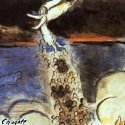 [ The following is related to our Torah portion for this week, parashat Masei... ]
The Battle for your life...  07.16.20 (Tammuz 24, 5778) We must stand for the truth, because the truth is what sets us free (John 8:32). As Yeshua said, "For this purpose I was born and for this purpose I have come into the world -- to testify to the truth. Everyone who is of the truth listens to my voice" (John 18:37). We must turn away from the lie to embrace the truth. One day all that is hidden will become manifest. "As I looked, thrones were placed, and the Ancient of Days took his seat; his clothing was white as snow, and the hair of his head like pure wool; His throne was ablaze with fire and its wheels were all aflame. A river of fire was streaming forth and proceeding from his presence; a thousand thousands served him, and ten thousand times ten thousand stood before him; court sat in judgment, the books were opened" (Dan. 7:9-10). נָסוּ וְאֵין־רֹדֵף רָשָׁע na'·soo · ve'ein - ro·deif · ra·sha "The wicked flee when there is no one pursuing, Note: Click the graphic (above) to learn how to read the Hebrew text.
Daily Dvar Podcast: New Heart and Spirit...  07.15.20 (Tammuz 23, 5780) When King David cried out to the Lord, "Create in me a clean heart, O God," he did not use the Hebrew word yatzar (יָצַר), which means to "fashion" or "form" something from pre-existing material (Gen. 2:7), but he instead used the word bara (בָּרָא), a verb exclusively used in the Torah to refer to God's direct creation of the cosmos (Gen. 1:1). In other words, King David understood that no amount of reformation of his character would be enough, and therefore he appealed to that very power of God that alone could create yesh me'ayin, or "out of nothing." Such was the nature of the remedy required that was fulfilled in the cross of Messiah...
Loneliness and Exile...  [ The somber holiday of Tishah B'Av begins Wednesday, July 29th at sundown this year... ] הֲשִׁיבֵנוּ יְהוָה אֵלֶיךָ וְנָשׁוּבָה ha·shee·vei'·noo Adonai e·ley'·kha ve·nah·shoo'·vah "Turn us back to yourself, O LORD, and we shall be turned; Click to learn the Hebrew text: How many people today live in a state of self-imposed exile from the LORD? How lonely... God uses our loneliness and alienation to question our hearts, asking each of us, ayekah – "Where are you?" "Why have you turned away from me and chosen a state of exile?" Our inner pain is meant to provoke us to seek His face. He awaits our only possible response, "Hashivenu!" -- an imperative (demand) for the grace to repent: "You return us (i.e., you cause us to return) so that we may be reunited with you and healed!" We do not appeal to our own resources or strength to undergo this return, but rather trust that God's sovereign grace is sufficient to restore us to His presence. As Yeshua said, "No one can come to me unless the Father who sent me draws him, and I will raise him up" (John 6:44).
God is love, but is love God?  07.15.20 (Tammuz 23, 5780) Saying that "God is love" is not to say that "Love is God," and indeed the statement "God is love" should not be understood to express equivalence between the terms. But why is this important? Because there are some who falsely teach that "God is love" means "Love is God" which implies that whatever people may love or want – for instance a good friend, an exciting romance, a beautiful sunset, some stirring poetry or music, a pleasurable meal, and so on – may be regarded as a supposed revelation or "epiphany" of God. It should be evident, however, that the mere elevation of human yearning, even if worthy, is not what the Apostle meant when he said that "God is love."
The statement "God is love" (i.e., ὁ θεὸς ἀγάπη ἐστίν) occurs only 1 John 4:8 and 4:16, and in both cases is written with the word "God" having the definite article (i.e., ὁ θεὸς) but the word "love" is without the article (i.e., ἀγάπη), which is a grammatical construction that indicates the two words are not interchangeable. The definite article used with "God" denotes that the God of Israel is thegramamtical subject whereas the predicate noun "love" indicates an essential or necessary quality of the subject. In light of this we can translate "God is love" as "God in his very being, essence, and nature is love." However it must be stressed here that what John means by love (i.e., agape) can only be understood in context and by noting how he used this word in his other writings, particularly in the gospel he wrote and in the revelation of God's passion demonstrated at the cross where Yeshua became our "propitiation" (ἱλασμός) or atonement (kapparah) for our sins (1 John 4:10; John 3:16).
Inner and the Outer... 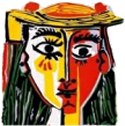 07.14.20 (Tammuz 22, 5780) Our Torah portion this week (i.e., Mattot) begins with Moses instructing the leaders of the tribes, saying: "If a person makes a vow (נֶדֶר) ... he shall not break his word; but he shall do according to all he has said" (Num. 30:2). Notice that the phrase "break his word" (לא יַחֵל דברו) literally means to profane (חָלַל) his word, which implies that breaking a promise is a type of spiritual defilement... If we do not honor and respect our words, we lose a sense of meaning, and the substance of what we say and think becomes unstable. Such double-mindedness leads to shame, since without inner conviction we become inwardly divided and fragmented, so that we no longer trust ourselves... Being honest (יָשָׁר) implies that what we say and what we mean are unified. An honest person doesn't play games with words but understands that communication is a sacred trust...
"Deliver me, O LORD, from lying lips, from a deceitful tongue" (Psalm 120:2). The sages say that the virtue of aminut (אֲמִינוּת), or trustworthiness, begins with learning to trust others... Parents are therefore responsible to fulfill their commitments to their children. Rabbi Zera said, "One should not say to a child, 'I will give you something' and then not do so, since that teaches the child to lie" (Sukka 46b). People learn to lie from a sense of betrayal, from the mismatch between professed words and reality. The breakdown of trust leads to the evasive use of words to protect ourselves. We tell others what we think they want to hear or we mislead them to keep ourselves safe. Breaking promises wounds others, and children can learn to become hardhearted, untrusting, and fearful of intimacy as a result.
Prayers of our Words...  [ The following is related to our Torah for this week, Parashat Mattot, which discusses various laws regarding vows and oaths... ] יהיו לרצון אמרי־פי והגיון לבי לפניך yee·he·yoo · le·ra·tzon · eem·rei - fee · ve·he·ge·yohn · lee·bee · le·fa·ney'·kha Let my words and my inmost thoughts be acceptable before you, As image bearers of God, our words likewise are to carry deep meaning and sanctity. Just as God's words are trustworthy, true, and lifegiving, so should be our words and communication. The sages say that the words we speak - whether good or bad - call for a response in the realm of spirit. This is hinted at by the Hebrew word for "thing" (i.e., devar: דָּבָר), which also means "word." Listen to the words of your heart and understand that they are devarim, "things" that are defining the course of your life right now. Our thoughts and words "exhale" the breath of God that was given to each of us. In a very real sense they are "prayers" we are constantly offering...
The Central Thing... 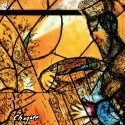 07.14.20 (Tammuz 22, 5780) From our Torah portion this week (i.e., parashat Mattot) we read: zeh ha'davar asher tzivah Adonai (זה הדבר אשׁר צוה יהוה), "This is the thing the LORD has commanded" (Num. 30:1). The language here seems to suggest that there is only one matter that God has commanded, namely, to speak truth and to be faithful in our promises (Num. 30:2). This is because the sacredness of our word is the foundation for all our other responsibilities. After all, if our word is equivocal, it is unclear, unreliable, undecided, and therefore ultimately meaningless.... Insincere words are without genuine commitment, and the lack of decisiveness undermines all Torah. זה הדבר אשׁר צוה יהוה - "This is the thing the LORD has commanded," namely, to accept your duty to honor the truth; to keep your faith in God's word; and to hold sacred your commitment before God. כי־אמת יהגה חכי kee - e·met · ye·he·geh · chee·kee "For my mouth will utter truth;
Daily Dvar Podcast: Withstanding Evil Days...  07.14.20 (Tammuz 22, 5780) As people of faith in the LORD, we profoundly feel the tension between affirming both that our loving Creator sustains all things by the word of his power (Deut. 32:4; Psalm 33:4; Col. 1:16-17, Heb. 1:3, etc.) and yet acknowledging that the ongoing depravity of human beings yields untold suffering, heartache, and pain in this world. In this "Daily Dvar" broadcast I range over a number of issues regarding trusting God in times of darkness and ambiguity. I hope you find it helpful, friends.
Near to the Hurting...  07.13.20 (Tammuz 21, 5780) Awakening to our need for God inevitably involves a sense of irremediable brokenness, a feeling that you are not whole, that you are a mess, and that your need for God's healing is constant and relentless... Contrary to the ideals of proud humanism, spirituality is a state of "blessed neediness," of being "poor in spirit," that aches with inner desperation for God's power of healing (Matt. 5:3). Those who humbly cry out to the LORD understand their great need for deliverance. Our Lord Yeshua testified: "The Son of Man came to seek and to save the lost" (Luke 19:10), and therefore He is found in the midst of the leper colonies of the hurting, the forgotten, and the rejected. As the "Man of Sorrows" (i.e., ish makhovot: אִישׁ מַכְאבוֹת) he understands the language of our pain (Isa. 53:3). קָרוֹב יְהוָה לְנִשְׁבְּרֵי־לֵב ka·rohv · Adonai · le·neesh·be·rei - leiv "The LORD is near to the brokenhearted The question may be asked, how can we live with our brokenness? Yeshua asks us not to see it as a curse from God that reminds us of our wretched condition but to yield it to Him for our sanctification and ultimate healing... In this way, brokenness can be a gateway to a deeper walk with God, going "through the wound" to find life and blessing...
Daily Dvar Podcast: Surrender and Faith...  07.13.20 (Tammuz 21, 5780) Shalom friends. In today's "Daily D'var" broadcast (link below) I discuss the need for surrender and the cost of discipleship for a follower of Yeshua. I also talk about the relationship between Torah and grace, the role of obedience to the truth, and demand for the full passion of our heart. I hope you will find it encouraging.
This Week's Torah: Parashat Mattot-Masei... 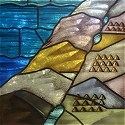 07.12.20 (Tammuz 20, 5780) Shavuah Tov, chaverim! This week we read a "double portion" of Torah that will conclude Sefer Bamidbar, or "the Book of Numbers." Our first Torah portion, called parashat Mattot (מַטּוֹת, "tribes"), begins with the LORD giving laws and prohibitions regarding the making of vows (nedarim). After this, the Israelites were commanded to wage war against the Midianites for seducing the people to sin at the incident of "Baal Peor." During the ensuing battle, the wicked sorcerer Balaam was killed, as well as five tribal kings of the land of Midian. The tribes of Reuben and Gad (and half of the tribe of Manasseh) then asked permission to settle in the pasture land of Gilead (on the east of the Jordan), since they had large herds of cattle. At first Moses hotly disapproved of their request, since he feared that the other tribes would lose heart if these tribes stayed behind during the conquest of Canaan. However, when the tribal leaders made a vow to join the fight while their families remained in Gilead, Moses finally agreed.
In our second Torah portion, called parashat Masei (מַסְעֵי, "journeys"), Moses recounted the various "stations" of the journey, and instructed that when the people crossed the Jordan into the land of Canaan, they were to drive out all the inhabitants and to utterly destroy all traces of their culture and religion. After this, the land would be divided by lot according to tribes of Israel, based on the size of each tribe. God then warned Moses that if the Israelites would not drive out the inhabitants of the land, they would become a "snare" to them, and God would then judge and exile the Israelites as he intended to do to the Canaanites.
Resources:
The Breath of Life...  07.10.20 (Tammuz 18, 5780) A verse from this week's Torah (i.e., parashat Pinchas) reveals another great Name of God: Elohei ha'ruchot le'khol basar (אלהי הרוחת לכל־בשׂר), which can be translated "the God of the breath of all flesh" (Num. 27:16). This Name reveals that the LORD is the Source of your breath, the One who exhales to you nishmat ha'chayim (נשימת החיים), the "breath of life" that enables you to live (Job 12:10). The sages use the analogy of a glassblower who creates a glass vessel. Just as the glassblower blows into a tube to form a vessel from molten glass, so the "breath" (i.e., neshamah: נְשָׁמָה) that comes from the LORD functions as spirit (i.e., ruach: רוּחַ) that forms and fills the human soul (i.e., nefesh: נֶפֶשׁ). Note especially that the Name YHVH (יהוה), the LORD, first appears in this connection (Gen. 2:7), a designation that also means "God is Present" (Exod. 3:14) and "God is Mercy" (Exod. 34:6-7). Note also that each letter of the Name YHVH represents a vowel sound (i.e., breath), suggesting that God's Spirit is as close as your very next breath. Like the wind that cannot be seen, so is the spirit the essential part of your identity. Truly in God we "live and move and have our being" (Acts 17:28). Shabbat Shalom, chaverim!
Accepting His Crucified Life...  07.10.20 (Tammuz 18, 5780) Some people seem to think that to be "crucified with Messiah" means that we must totally surrender our lives to God by denying ourselves and mortifying every passion apart from the Spirit of Messiah living within us (Gal. 2:20). However, if we could do this - if we really could crucify ourselves, deny ourselves, and completely yield our hearts to God in absolute surrender, we wouldn't need the miracle of salvation, would we? We'd be back at the religious game, attempting to please God through our own "best efforts," and endeavoring to affect spirituality by means of our own merit. On the contrary, Yeshua said that no one is able to come (οὐδεὶς δύναται ἐλθεῖν) to him for life unless God Himself "drags him" (John 6:44). The flesh is scandalized by this, of course, since the ego plays no part. Eternal life is found in the righteousness of Yeshua, and self-denial means to quit thinking about yourself (from α-, "not," + ῥέω, "to speak") by accepting what he has done for you. We have been (already) crucified with Messiah (the verb συνεσταύρωμαι is a perfect passive form), and just as we are identified with him in his death, so we are identified with him in his resurrected life. This is a matter of faith, trusting that God's love for your soul overcomes the law's powerlessness and your own inability to save yourself...
The moral law of God is a perfect mirror, revealing the truth about our inward condition. The reality of our sin leads to brokenness and the confession of our need for God's power to change our hearts. But we can only get to that place by means of the cross: We first die to all hope in ourselves and our religious aspirations, and then God does the miracle. The cross demonstrates that any attempt of the flesh to please God (i.e., "religion") is useless and needs to be laid to rest. True obedience, then, means surrendering to the LORD who heals your heart (forgives your sin) and sets you free to know Him. This is the "end of the law," after all - to walk as God's free child who pleases Him out of a relationship of love, trust, and blessing. We can obey God, in other words, only if we first surrender our hearts to his love.
All who surrender obey, but not all who obey surrender... While we are not saved by obeying rules of conduct but solely by trusting in God's love (Eph. 2:9; 2 Tim. 1:9, Titus 3:5, Rom. 11:6, etc.), we will find ourselves willing to obey God from the heart only if we are really convinced that he loves and accepts us, despite our sins... The love of God is not without discipline, structure, and order, after all. Love is polite; it listens; it seeks to serve and worship with reverence and gratitude. So, after unconditionally surrendering our hearts to God, we will desire to do his will, that is, we will want to know and to do his Torah (Psalm 1:2), and the Holy Spirit will therefore lead us to a place of order, faithfulness, and peace - not to disorder and confusion (1 Cor. 14:33,40). There are disciplines to the life of faith that are instilled within our hearts to help us "work out" the inner transformation of God's love into our daily lives. And that is part of the rationale for liturgy, ritual, observing the moedim (biblical holidays), reading the weekly Torah portions, giving tzedakah, performing acts of chesed, and so on. Ideally such things are meant to provide "form" to the inner content of the heart. May the LORD our God teach us the path of his peace....
Our Meditation all the day...  07.10.20 (Tammuz 18, 5780) The Scriptures declare: "Blessed is the man who ... delights in the Torah of the LORD (בְּתוֹרַת יְהוָה); all that he does shall prosper" (Psalm 1:1-3). And while it is true that we are no longer 'under' the terms of the covenant given at Sinai (Rom. 3:23), we still delight 'in' the Torah and meditate on its precepts day and night (Psalm 1:2; 19:8; 119:15, 47, 97; Neh. 8:12, etc.). After all, Torah "written upon the heart" is a mark of the New Covenant believer (Jer. 31:31-33). As it is written in Proverbs: "If you seek it [i.e., the wisdom revealed in the Torah] like silver and search for it as for hidden treasures, then you will understand the fear of the LORD and find the knowledge of God" (Prov. 2:4-5). Where it is written, "all Scripture is breathed out by God (θεόπνευστος) and is profitable for teaching, for reproof, for correction, and for training in righteousness, that the man of God may be complete, equipped for every good work" (2 Tim 3:16-17), it is evident that the Scriptures referred to here are the Jewish Scriptures (i.e., the Torah, the Prophets, and the Writings), since they are the foundation, the context, and the overarching matrix for the later New Covenant revelation. These were the Scriptures Yeshua used to contextualize and explain his ministry to his followers: "And beginning with Moses and all the Prophets, he interpreted to them in all the Scriptures the things concerning himself" (Luke 24:27; John 1:45). In other words, the Torah has both a logical, a linguistic, and a theological priority regarding our understanding of the New Testament, and the failure to read in context invariably leads to faulty interpretations and doctrinal errors of various kinds. "To the Jew first, and [then] to the Greek" (Rom. 1:16) is a principle not only of how the gospel message would transcend ethnic Israel to be offered to all the nations, but also about how we should approach the subject of Biblical "hermeneutics." God "breathed out" his revelation in order, and the message itself must be understood in light of that order (John 4:22). Click to listen and learn the Hebrew text:
The Day of the LORD is near... 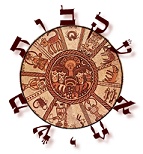 07.10.20 (Tammuz 18, 5780) Since our political age is marked more than ever by syncretism and "politically (in)correct" forms of coercion (i.e., socialized violence), we must understand and value the life of the authentic individual, that is, the person of faith who is marked by moral courage and integrity that transcends the indoctrination and stupor inculcated by mass media and its relentless propaganda.... It is as common as a coin of the realm to see the schemes of various "change agents" fabricating problems in order to move the social order according their agendas. Indeed this is the age of engineered terror, the antithesis of which is not some nebulous "freedom" as suggested from the princes of this world, but rather a new form of slavery unlike anything before seen on this earth. It behooves us not to look to the usual suspects -- and never to forget the role of the crowd in Nazi Germany...
In light of all this, we must be be careful not to cling to this world or be "disheartened when the desolation of the wicked comes" (1 John 2:15; Prov. 3:25). The kingdom of man is at war with the kingdom of God, and whoever wishes to be a "friend" of this evil world makes himself an enemy of God (James 4:4). Regarding this doomed world the LORD speaks thus to His children: "Come out of the midst of her and be ye separate, lest you take part in her sins, lest you share in her plagues." This call to be separate may be more difficult for those who live in the midst of present-day "Babylon" than in other places of the world, because in Babylon it is far too easy to coddle the flesh and to avoid taking a costly stand for the truth... However, the reign of Babylon is spreading like a cancer throughout the world, consolidating power, and soon it will demand complete allegiance of all who dwell upon the earth. During that time of tribulation, all the peoples of the world will be forced to chose whether to accept the "mark of the beast" (i.e., citizenship in world order) or to face persecution, etc. We must not fear man or his devices, for the LORD will protect and strengthen His people. יהוה עז לעמו יתן Adonai · ohz · le·am·mo · yee·tein "The LORD will give strength to his people;
Daily Dvar Podcast: Godly Sorrows...  07.09.20 (Tammuz 17, 5780) Shalom chaverim. Today I recorded another "Daily Dvar" audio broadcast that discusses why God may allow sorrow and affliction in our lives. It's a difficult topic, of course, and there are no easy answers for why we suffer, though we can frame our concerns in light of the teaching and counsel of Scripture to encourage us to persevere in our faith -- even when things are hard for us. I hope you find it encouraging in your journey.
The Torah of Sorrows... 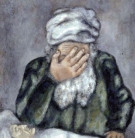 07.09.20 (Tammuz 17, 5780) The Scriptures are filled with desperate cries of the heart... "How long, O LORD? Will you forget me forever? How long will you hide your face from me? How long must I take counsel in my soul and have sorrow in my heart all the day?" (Psalm 13:1-2). "Make haste to help me, O LORD, my salvation!" (Psalm 38:22). "My soul melts away from sorrow; strengthen me according to your word" (Psalm 119:28). "Answer me quickly, O LORD! My spirit fails! Hide not your face from me, lest I be like those who go down to the pit" (Psalm 143:7). God know that "hope deferred makes the heart sick" (Prov. 13:12), so there can be no turning to God, no teshuvah, apart from the presence of real hope (תִּקְוָה). Indeed, as the Apostle Paul wrote: "We are saved by hope" (Rom. 8:24). "Whenever you find tears in your eyes, especially unexpected tears, it is well to pay the closest attention. God is speaking to you through them of the mystery of where you have come from and is summoning you to where you should go to next. (Frederick Buechner, Whistling in the Dark: 1988).
New Hebrew Audio Teaching Method  07.09.20 (Tammuz 17, 5780) Shalom talmidim. I am beginning to add some "audio helps" to the various Hebrew verses I analyze here so that those of you studying Biblical Hebrew might better learn and understand the biblical text as it is being read. For a sample of this method, listen to the audio link for the attached graphic of Psalm 119:28. Please let me know if you like this approach. Thank you, chaverim.
The Fast of Tammuz...  07.09.20 (Tammuz 17, 5780) Today is the 17th of Tammuz, the date that Moses shattered the tablets after he came down from Mount Sinai and saw the people worshiping the Golden Calf. In Jewish tradition this tragedy is commemorated as a fast day (i.e., the "Fast of Tammuz"), which marks the beginning of a three week period of mourning that culminates on the 9th of Av (i.e., "Tishah B'Av"), the date the Israelites were sent into exile from the land because they believed the evil report of the spies (Num. 14:20-35). Click for more:
Prayer for this hour...  07.09.20 (Tammuz 17, 5780) Many of us are hurting, Lord, and we sometimes feel alone in our struggle... This world seems so senseless, so brutal, and so evil at times; we feel powerless, overwhelmed, and even sick inside... We look to You, O God, and for your mercy and power. Help us to accept what we cannot change and to completely trust in Your great healing, despite the sickness of the world around us. Remind us that though we cannot change the world, we are given grace to sustain our trust in You, our glorious and merciful Healer. And may we never be ashamed; may we never grow bitter; may our sorrows lead us from strength to strength. And may this time of testing lead us to greater wisdom, to compassion, and finally back to You. Amen.
He Gives Greater Grace...  07.09.20 (Tammuz 17, 5780) "For though the LORD is exalted, He regards the lowly, but the haughty He knows from afar" (Psalm 138:6). Yea, God opposes the proud but gives grace to the humble (James 4:6). And who are the humble but those keenly aware of their own nothingness - the despised, the needy, and the rejected of men? The LORD justifies the ungodly by faith; He hears their cry for deliverance "from the depths"; he creates them anew yesh me'ayin, "out of nothingness," by making them into a "new creation" (בְּרִיאָה חֲדָשָׁה) through the agency and power of the Holy Spirit (Rom. 4:17; 2 Cor. 5:17). O praise Adonai Oseinu, the LORD God our Maker, for he looks upon the lowly, he is near to nishberei lev, the brokenhearted, and he binds up their wounds... כִּי־רָם יְהוָה וְשָׁפָל יִרְאֶה kee - rahm · Adonai · ve·sha·fahl · yeer·eh "For though the LORD is exalted, He regards the lowly, Just as the LORD made the world yesh me'ayin, "out of nothing," so His creative power continues unchanged. God is able to take a dead heart, a heart of stone, and make it tender and soft through the breath of His Spirit... Therefore His eyes look upon the lowly, the humble, the poor in spirit, but He disregards those who lift themselves up in pride. אִם־לַלֵּצִים הוּא־יָלִיץ eem - la·lei·tzeem · hoo - ya·leetz "With the scorners He is scornful; When Yeshua quoted of the Haftarah from the prophet Isaiah in the synagogue, saying: "The Spirit of the Lord GOD is upon me (רוּחַ אֲדנָי יְהוִה עָלָי), because the LORD has anointed me (מָשַׁח יְהוָה אתִי) to bring good news to the humble (לְבַשֵּׂר עֲנָוִים); he has sent me to bind up the brokenhearted (לַחֲבשׁ לְנִשְׁבְּרֵי־לֵב), to proclaim to the captives, liberty (לִשְׁבוּיִם דְּרוֹר), and to the bound ones, release from their chains; to proclaim the time of the LORD's favor" (Isa 61:1-2a; see Luke 4:12-13), he did not continue reading the passage to include the "Day of the Vengeance of our God" (i.e., the time of the Great Tribulation, or Yom Adonai) nor the Day of Zion's Comfort (i.e., the time of the final redemption and the establishment of the Messianic kingdom). Messiah's first advent as ben Yosef is to save and extend the time of grace; after this comes the second advent as ben David, when the judgment of the nations takes place and the King of God rules over the earth. The Day of the LORD draws near, friends. May God help us be ready...
Awakening to Life... 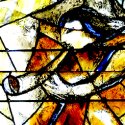 07.08.20 (Tammuz 16, 5780) We shouldn't be surprised that so many people refuse to wake up and realize the profound spiritual danger of their lives – namely, the imminent reality of personal judgment and death – since the Scriptures declare that people willingly suppress the truth and "celebrate" untruth (see Rom. 1:20-32). Soren Kierkegaard commented: "The world wants to be deceived... intensely, more intensely, more passionately perhaps than any witness to the truth has fought for the truth, the world fights to be deceived; it most gratefully rewards with applause, money, and prestige anyone who complies with its wish to be deceived" (Judge for Yourself). Indeed, any distraction that seduces people to deny reality will suffice for the sake of untruth... The Scriptures state: "And this is the judgment: the light has come into the world, and people loved the darkness rather than the light because their works were evil. For everyone who does wicked things hates the light and does not come to the light, lest his works should be exposed. But whoever does what is true comes to the light, so that it may be seen that his works have been done in the power of God" (John 3:19-21). "While there is nothing terrifying whatever and no terror whatever, there is nothing that builds up either, no upbuilding whatever. There is forgiveness of sin - that is upbuilding. The terrifying is that there is sin, and the magnitude of the terror in the inwardness of guilt-consciousness is proportionate to the dimension of the upbuilding. There is healing for all pain, victory in all strife, rescue in all danger - that is upbuilding. The terrifying is that there is pain, strife, danger; and the magnitude of the terrifying and the terror is proportionate to what builds up and to the upbuilding." - Soren Kierkegaard, Christian Discourses, 1848.
Words of Guidance...  07.08.20 (Tammuz 16, 5780) The great commandment is always Shema - listen - and heed God's Voice: "And your ears shall hear a word behind you, saying, "This is the way, walk in it" (Isa. 30:21). At any given moment of our day, then, we can attune ourselves to hear the "upward call" and come "boldly before the Throne of Grace" (Heb. 4:16). The world knows nothing of this realm and is enslaved by appearances and the delusions of olam ha'sheker (עולם השקר). As Yeshua said, "To you it has been given to know the mysteries of the kingdom of heaven, but to them it has not been given" (Matt. 13:11). The Spirit always says, "Come, my people, enter your chambers, and shut your doors behind you" (Isa. 26:20). The LORD beckons: "Call to me and I will answer you, and will tell you great and hidden things that you have not known" (Jer. 33:3). And I looked, and behold, a door standing open in heaven. And the first voice, which I had heard speaking to me like a trumpet, said, "Come up here, and I will show you what must take place...." (Rev 4:1).
Reaffirming the Appointed Times...  [ The following entry concerns this week's Torah reading, parashat Pinchas... ]
Notice that the Torah teaches that the Biblical holidays - including Shabbat, Rosh Chodesh, and so on - were intended to help us to sanctify ("set apart," "make holy") the times and seasons in order to remind us of God's Presence (Psalm 104:19). Therefore they are called mikra'ei kodesh (מִקְרָאֵי קדֶשׁ), "times in which holiness is proclaimed" (Lev. 23:2). The Torah's declaration that these days are holy implies that they are set apart for special activities, such as commemorating God as our daily Savior (the tamid offering), our Creator (Shabbat), our Redeemer (Passover), our Resurrection (Firstfruits), our Law Giver (Shavuot), our King (Rosh Hashanah), our High Priest (Yom Kippur), and so on. In this connection it should be noted that it is a mistake to assume that the divine calendar was somehow abrogated with the cross of Yeshua, since all of the Jewish holidays center on Him, and indeed the advent of the Ruach Ha-Kodesh (Holy Spirit) occurred after the resurrection and prescribed 49 day countdown to Shavuot (Acts 1:8; 2:1-4). This is signifcant because it proves that Yeshua intended his followers to observe the holidays after the institution of the new covenant.
Daily Dvar Podcast: Faith and the Challenge of Evil...  07.08.20 (Tammuz 16, 5780) As people of faith in the LORD, we profoundly feel the tension between affirming both that our loving Creator sustains all things by the word of his power and also acknowledging the ongoing depravity of human beings and how that results in suffering, heartache, and pain in this world. In the following theological audio discussion, I ponder some questions that arise when we seriously consider these matters:
Olam Katan - Small World...  07.08.20 (Tammuz 16, 5780) It is written in our Torah portion for this week (i.e., Pinchas), "My offering, my food for my food offerings, my pleasing aroma, you shall be careful to offer to me at its appointed time" (Num. 28:2). Wait. Food for God? What need has the LORD for food? But by this is meant "as you have done it to least of these my brethren, you have done it unto Me" (Matt. 25:40). The offerings you make to tzedakah (giving charity, your time, your kindness, etc.) constitute food presented before the secret place of God's altar... גאות אדם תשׁפילנו ga·a·vat · a·dam · tash·pee·le'·noo "The proud will be humbled, There are assumptions we bring to the reading of Torah that affect how we read and what we will hear... The sages generally agreed that the greatest principle of Torah is to love your neighbor as yourself (Lev. 19:18), though Ben Azzai further said that even greater is the principle that God created man in His likeness (i.e., bid'mut Elohim, בִּדְמוּת אֱלֹהִים, in "outline" or "silhouette," the word demut [דְּמוּת] is a synonym of tzelem [צֶלֶם], a "shadow" or semblance) since then one cannot say, 'Since I despise myself I can despise another as well; since I curse myself, let the other be accursed as well.' Being made in God's likeness means how we regard ourselves will be the measure we regard even God Himself (1 John 4:20). Therefore the first commandment is always, "I am the LORD thy God..." (Exod. 20:2), since apart from faith, there is no Torah of any kind.
Daily Dvar Podcast: Called by name ...  07.07.20 (Tammuz 15, 5780) In today's "Daily Dvar" broadcast (see link below) I hope to encourage you to live without fear because of the great love and grace the Lord has for you. The Lord has personally redeemed you, friend; he calls you by name, and you belong to him. Indeed the Lord loves you "b'ahavat olam" - with everlasting love - and therefore he draws you close to him (Jer. 31:3). Shalom chaverim.
Sufficient this day...  07.07.20 (Tammuz 15, 5780) In the Gospel of Matthew we read these words of our Lord: "Therefore do not be anxious about tomorrow, for tomorrow will be anxious for itself. Sufficient for the day is its own trouble" (Matt. 6:34). Soren Kierkegaard comments: "If there is no next day for you, then all earthly care is annihilated. When the next day comes, it loses its enchantment and its disquieting insecurity. If there is no next day for you, then either you are dying or you are one who by dying to temporality has grasped the Eternal, either one who is actually dying or one who is really living... The one who rows a boat turns his back to the goal toward which he is working. So it is with the next day. When, with the help of the Eternal, a person lives absorbed in today, he turns his back to the next day. The more he is eternally absorbed in today, the more decisively he turns his back to the next day." Amen. Today is the day of salvation; today may we hear His voice... "If there is no next day for you, then either you are dying or you are one who by dying to temporality has grasped the Eternal, either one who is actually dying or one who is really living..." [Kierkegaard]
A person must be content to be as he is; a dependent being, as little capable of sustaining himself as of creating himself. If we choose to forget God and look after our own sustenance, then we are overcome with anxiety. It is certainly praiseworthy and pleasing to God when a person works for his food. But if he forgets God, and thinks that he himself is supporting himself, then he becomes burdened with the necessities of life... Worry about making a living, or not making a living, is a snare. In actuality, it is the snare. No external power, no actual circumstance, can trap a person. If a person chooses to be his own providence, then he will go quite ingenuously into his own trap, the wealthy as well as the poor. If he wants to entrench himself in his own plot of ground that is not under God's care, then he is living, though he does not acknowledge it, in a prison. When the farmer shut the door on the wood dove, the wood dove believed himself to be safe, when in fact he was caught. Or to put it another way, he was shut out from the care of Providence and trapped in a life of anxiety. In a spiritual sense he made himself a captive and "trapped himself unto death." (Kierkegaard UPD) It is the saddest thing of all if a human being goes through life without discovering his need for God. Therefore blessed indeed are the poor in spirit, for theirs is the kingdom of heaven (Matt. 5:3). It is a "blessed fault" to understand our inner poverty, to know anguish of heart, and to be able to abide in God's salvation one day at a time....
Perfected Strength...  07.07.20 (Tammuz 15, 5780) "Have you not known? Have you not heard? The Eternal One, the LORD, is the Creator of the ends of the earth (בּוֹרֵא קְצוֹת הָאָרֶץ). He does not faint nor grow weary; his understanding is unsearchable. He gives power to the faint, and to him who has no might he increases strength" (Isa. 40:28-29). Human reason has no objection that God can impart strength, but it objects that strength is found in those who are broken and weary – that is, to those mortally wounded in the battle against evil. The principle of the self-life, the ego, religious observance, "doing the law," etc., is a spiritual dead-end. The word is this: God gives strength to the weary, to the faint, to those who are without potency or power. But this means that we first must be emptied, broken, and stripped of our self-sufficiency before the strength of God is manifest in us: "My power is made perfect (τελειοῦται) in weakness" (2 Cor. 12:9). God's way is first to break us, to make us weaker and weaker, so that he can then fill us with the miraculous divine nature. Like all sacrifices that were brought to the altar, we must pass through death to life by means of our union with the Messiah at the cross... It is only after the cross that it may be said, "It is no longer 'I' who lives; now it is Messiah who lives His life in me." There is indeed strength, power, and victory – but such comes after the cross, after we reckon carnal energy as useless. Not by might, nor by power, but by My Spirit, says Adonai Tzeva'ot (Zech. 4:6). נתֵן לַיָּעֵף כּחַ no·tein · la·ya·eif · ko'·ach "He gives power to the faint, Where we read, "Messiah who loved me and gave himself for me" (Gal. 2:20), we emphasize the object of God's redeeming love; we stress that this word is being spoken to "me," and that Messiah's love is poured out "for me." But how can we justify doing so, in light of the innumerable souls that have been brought forth in the world? The Mishnah asks, "Why was man created alone?" and answers so that each person must say the world was created for me. "Whoever destroys a soul, it is considered as if he destroyed an entire world; and whoever saves a soul, it is considered as if he saved an entire world..."
True and False Zeal...  [ The following entry concerns our Torah reading for this week, parashat Pinchas... ]
Wounded Shepherd... 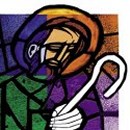 [ The following concerns this week's Torah reading, parashat Pinchas....
Feeding God's Heart... 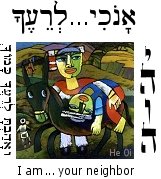 [ The following entry concerns this week's Torah reading, parashat Pinchas... ]
Sometimes we say that we "hunger for God," but it is vital to remember that it is God who first hungers for us. God desires our love and fellowship. He comes to seek fruit among the trees - but does He find any? He walks in the cool of the day, calling out to us, but are we attuned to hear His voice? Do we accept the invitation to be in His Presence? When God "knocks on the door of your heart" to commune with you, what "food" will you be serving? (Rev. 3:20). Every day we are given an opportunity to "feed God" through expressing faith, hope, and love. Ultimately it is our obedience to the truth is what "feeds" Him: "Behold, to obey is better than sacrifice, and to hearken than the fat of rams" (1 Sam. 15:22).
We "feed God" by offering heartfelt prayer, by walking in faith, by yearning for Him, by studying Scripture, by participating in corporate worship, by giving tzedakah, by performing acts of kindness (gemilut chasadim) for others, and so on (Heb. 13:15-16). Expressing our love for God is the deepest meaning of teshuvah, which is an "answer" or response to His great love for us (1 John 4:19). Just as God feeds and sustains us through His love, so we "feed Him" by our yearning, our prayers, our praise, and our worship...
Relying on God Alone...  07.06.20 (Tammuz 14, 5780) "We we were so utterly burdened beyond our strength that we despaired of life itself, yes, we felt that we had received the sentence of death; but that was to make us rely not on ourselves, but on God who raises the dead" (2 Cor 1:8-9). This marks the end of carnal hope, when we realize we are but "dead men walking," and from this extremity of inner desperation and clarity we learn to rely solely on God for what we need. Here we abandon ourselves to God's care, despite the despair, darkness, and fear. We rely on "God who raises the dead," because all other remedies have been vanquished. It is a great gift to be so afflicted, for these "troubles of love" teach us to trust God alone for all we need. The only way out is through. We don't seek an easy way of life, but only that the LORD our God be with us throughout our troubles. "My portion is of the Lord," says my soul, "therefore will I hope for him" (Lam. 3:24).
Daily Dvar Podcast: Fear of the LORD...  07.05.20 (Tammuz 13, 5780) "The fear of the LORD is the first principle of knowledge, but fools despise wisdom and correction" (Prov. 1:7). In this "Daily Dvar" broadcast (see link below) I discuss how reverence or respect is axiomatic for a genuinely good life. Fearing God expresses the confidence that life is a sacred trust and that each soul is answerable to the Creator. Such godly reverence infers that nothing is trivial or inconsequential, and that all things will be accounted before the bar of divine truth. I hope you will find it helpful, friends.
Finding Purity of Heart...  07.05.20 (Tammuz 13, 5780) "Who shall ascend to the hill of the LORD? or who shall stand in his holy place? The one who has clean hands and a pure heart, who does not lift up his soul to vanity (לא־נָשָׂא לַשָּׁוְא) and who does not swear deceitfully" (Psalm 24:3-4). Yeshua expounded: "Blessed are the pure in heart, for they shall see God'" (Matt. 5:8). The Greek word translated "pure" is katharos (καθαρός), sometimes used describe the cleansing of a wound (catharsis), or to describe the unalloyed quality of a substance revealed through refining fire (the corresponding Hebrew word for the "pure of heart" (בַּר־לֵבָב), used in Psalm 24:4, comes from a root (בָּרַר) that likewise means to purify by fire). Metaphorically, then, purity of heart refers to separation from the profane - singleness of vision, wholeheartedness, passion, and focused desire for the sacred. As the Beatitudes reveal (Matt. 5:3-8), only those who are impoverished in spirit, who mourn over themselves and hunger for God's mercy, are refined by their struggle to see God (the Greek text implies these will see God now – with inward vision – and in the world to come). Because the pure in heart use ayin tovah, the good eye, they walk "in the light, as He is in the light" (Matt. 6:22). When we are undivided in heart, the Spirit imparts to us a hidden wisdom (1 Cor. 2:6-7) and we are able to discern hidden realities that others do not see (1 Cor. 2:14). As we center our affections on Yeshua, we become unified, made whole, and healed of our inner fragmentation. We see the Lord both in this world, through his effects, and then panim el panim (פָּנִים אֶל־פָּנִים), "face to face," in the world to come. Our hope purifies us for that coming great day of full disclosure (1 John 3:2-3; Heb. 12:14).
The heart is a miracle, an "engine" that distributes life, and the heartbeat is a great mystery, inexplicably pulsing with energy, contracting the muscles, pumping blood.. The pulse of the heart, then, is the "center of the center" of a person's physical life... If we are impure of heart, we will be inwardly divided, unfocused, fragmented, filled with destabilizing anxiety, envy, anger, and so on. More tragically, because we seek to escape ourselves, we will be devoid of a true center, without a focal point or abiding purpose, and therefore we will be lost to ourselves, wandering and without rest....
Shavuah Tov Podcast: Parashat Pinchas...  07.05.20 (Tammuz 13, 5780) The audio broadcast for parashat Pinchas provides an overview of the Torah reading as well as a discussion of the meaning of faith, the importance of the gospel message, and how Yeshua is revealed in the life of Pinchas... I also discuss the "Three Weeks of Sorrow" leading up to the somber holiday of Tishah B'Av as well as the significance of the Jewish holidays (mo'edim) in general. I hope you find it helpful.
Parashat Pinchas - פינחס  07.05.20 (Tammuz 13, 5780) Last week's Torah portion (i.e., parashat Balak) first introduced us to a man named Phinehas (i.e., "Pinchas"), the son of Eleazar the priest and grandson of Aaron, who, during the tragic rebellion at Baal Peor, zealously removed evil from Israel by driving a spear through a tribal prince who was brazenly cavorting with a Midianite princess in defiance of God's law. On account of Pinchas' zeal for the truth of Torah, God stopped the plague and Israel was delivered from great destruction... This week's Torah portion (i.e., parashat Pinchas) begins with the LORD rewarding Pinchas by granting him a "covenant of peace" (ברית שׁלום) and an everlasting priestly line in Israel (ברית כהנת עולם). As I hope you will see, Pinchas pictures the Messiah Yeshua, and the covenant of priesthood given to him is a picture of the greater priesthood after the order of Malki-Tzedek.
Overcoming the Darkness...  07.03.20 (Tammuz 11, 5780) Shabbat shalom dear friends... As a seed planted within soil seeks life by "reaching" for the sun, so our souls are drawn upward by the desire for God. The Lord calls us "out of darkness into his marvelous light" (1 Pet. 2:9); he calls us to awaken, to grow, and to come to the fullness of his life (John 10:10). Being called "out of darkness" means being set free of those spiritual forces that have held us captive. When we turn to the Divine Light for our sustenance and healing, we are set free from the pain of our fears and the insanity of evil (Acts 26:18). As it is written: "God has not given us the spirit of fear, but of power (δύναμις) and of love (ἀγάπη), and of a "sound mind" (2 Tim. 1:7). The Greek word "sound mind" (σωφρονισμός) comes from the verb sodzo (σῴζω), meaning "to save," from saos (σάος) "safe," in the sense of being under care and influence of the Spirit of God. "God is light, and in him is no darkness at all" (1 John 1:5). Heeding the truth of Yeshua grounds you in what is real and reveals your identity and provision as a child of God, as it is written: "For you are my lamp (כִּי־אַתָּה תָּאִיר נֵרִי), O LORD, and my God lightens my darkness."
|
||||||||||||||||||||||||||||||||||||||||||||||||||||||||||||||||||||||||||||||||||||||||||||||||||||||||||||||||||||||||||||||||||||||||||||||||||||||||||||||||||||||||
|
Hebrew for Christians |
||||||||||||||||||||||||||||||||||||||||||||||||||||||||||||||||||||||||||||||||||||||||||||||||||||||||||||||||||||||||||||||||||||||||||||||||||||||||||||||||||||||||
|
||||||||||||||||||||||||||||||||||||||||||||||||||||||||||||||||||||||||||||||||||||||||||||||||||||||||||||||||||||||||||||||||||||||||||||||||||||||||||||||||||||||||
